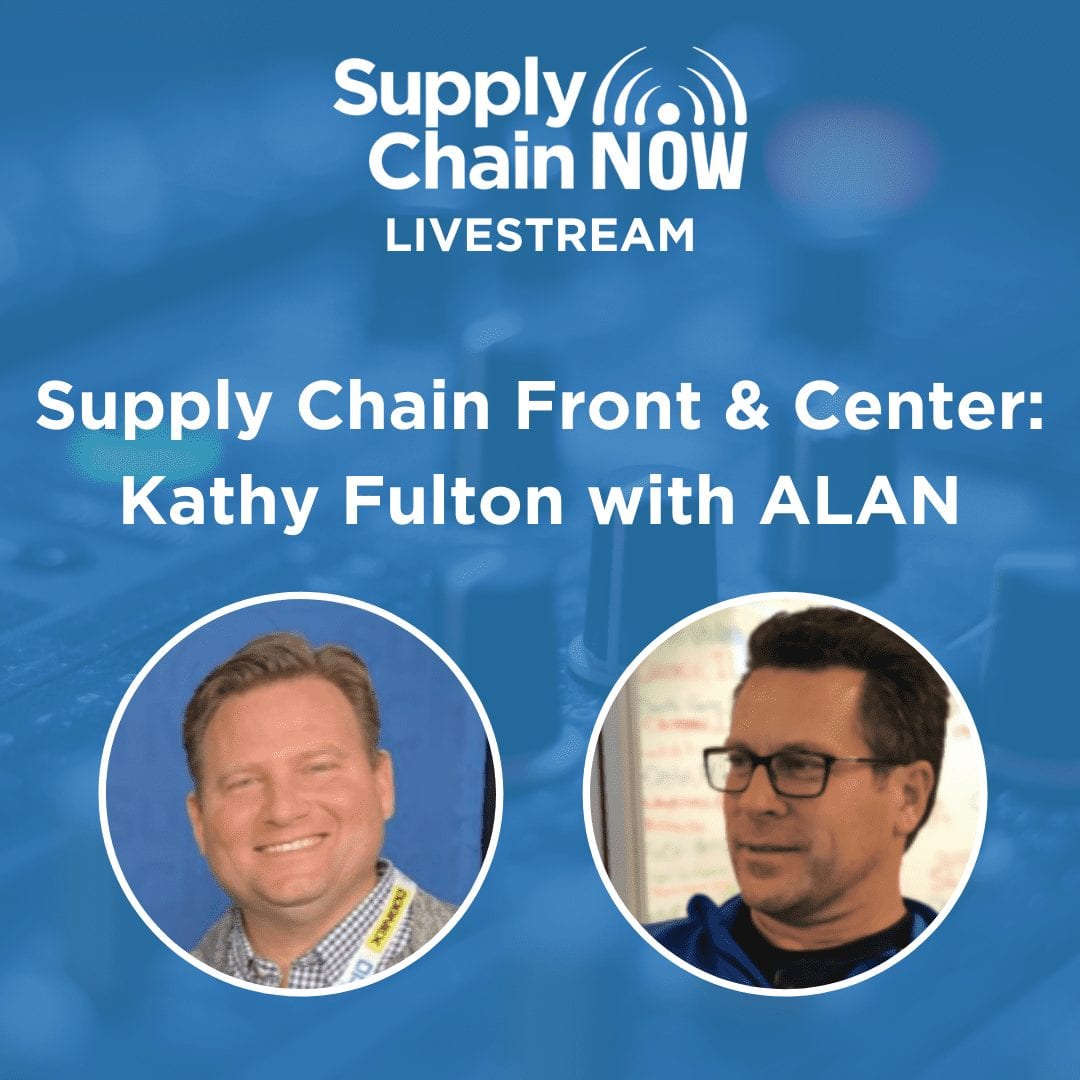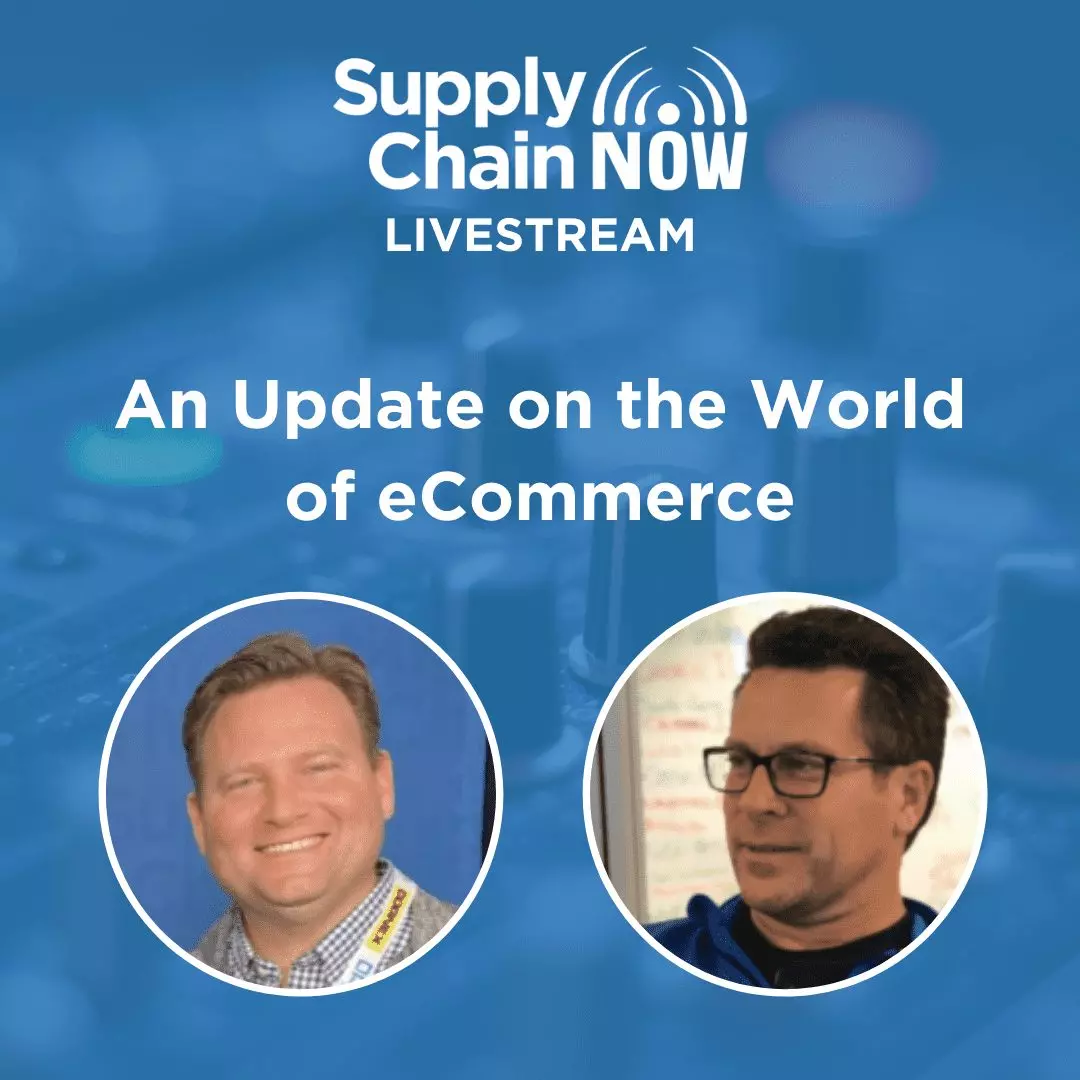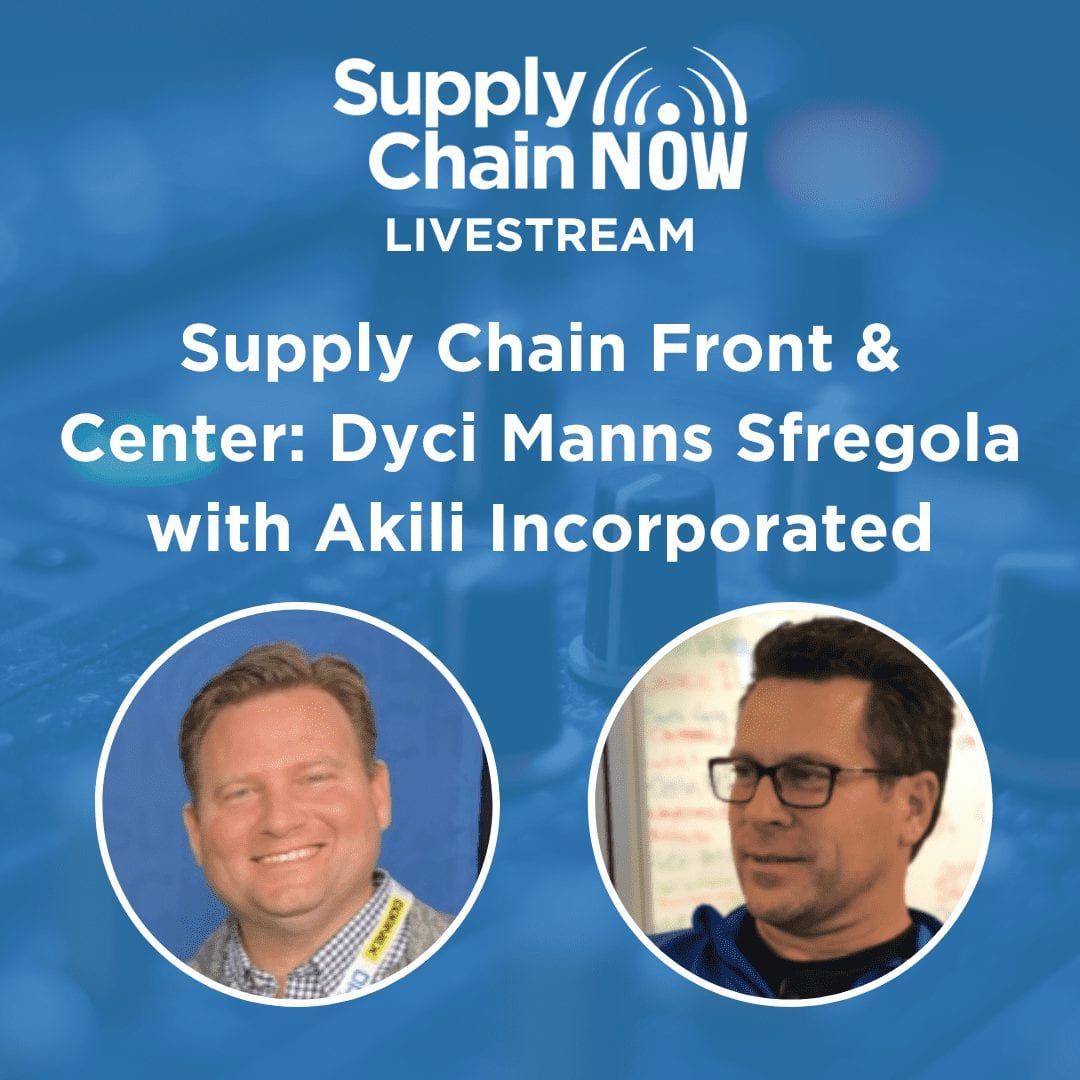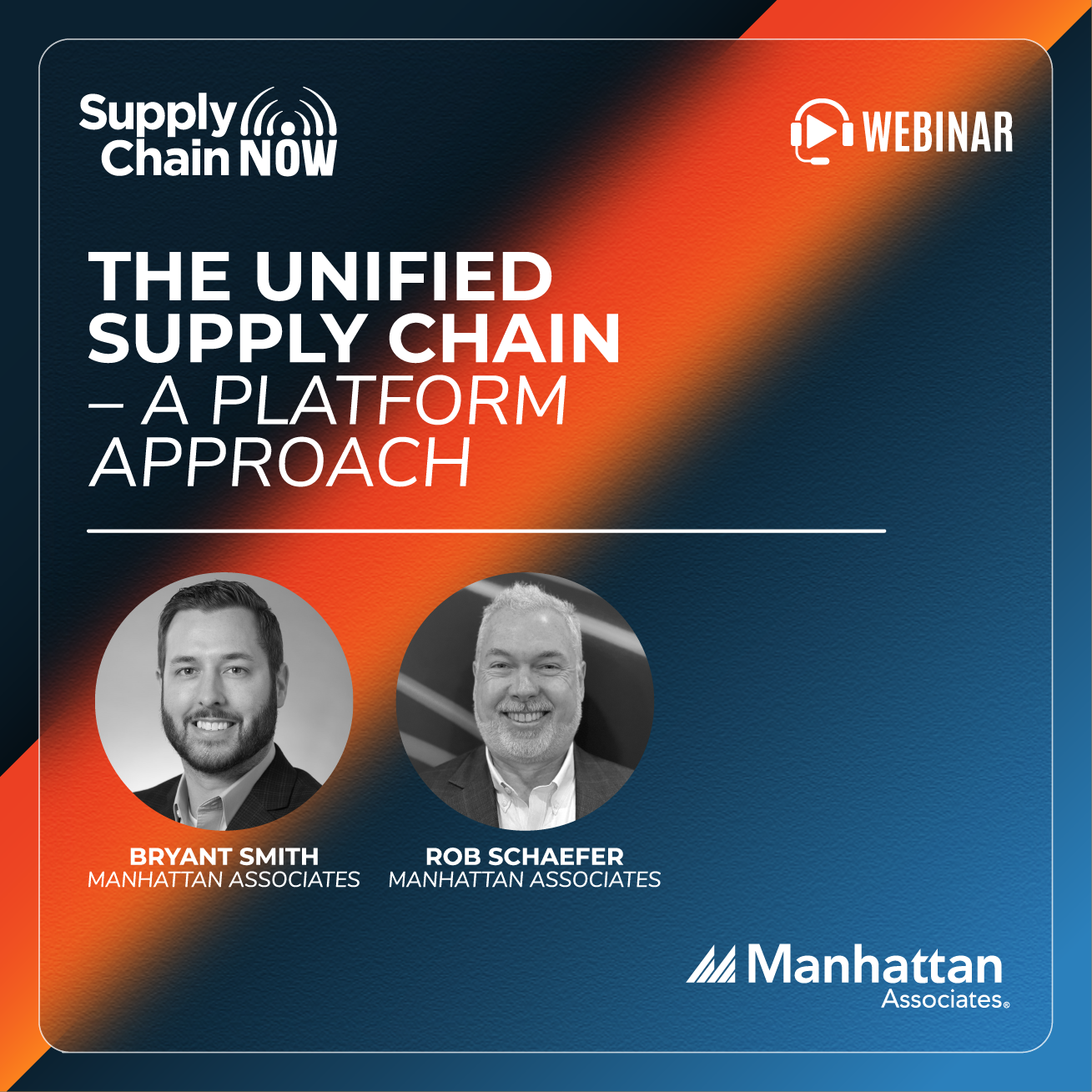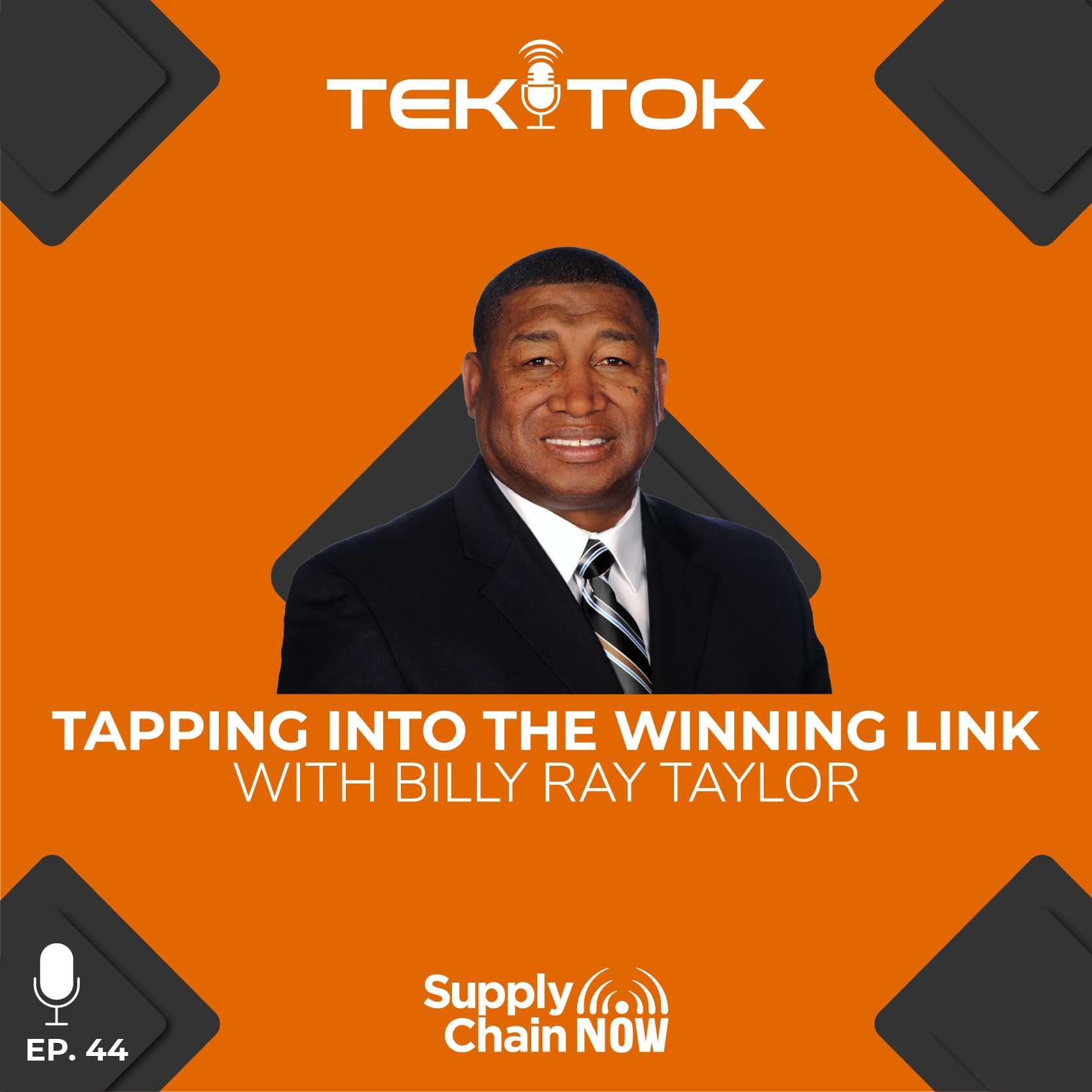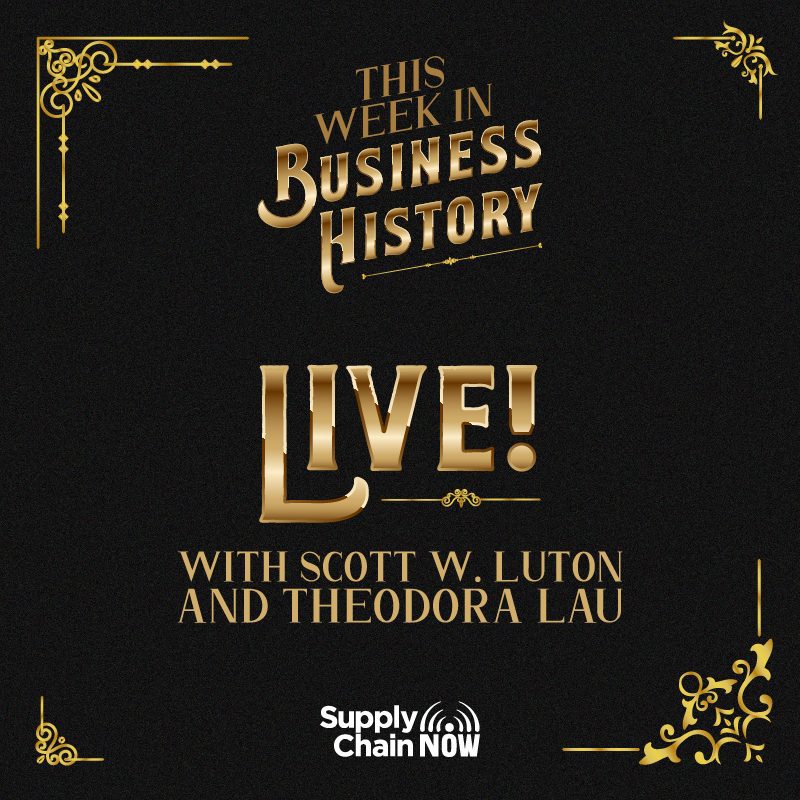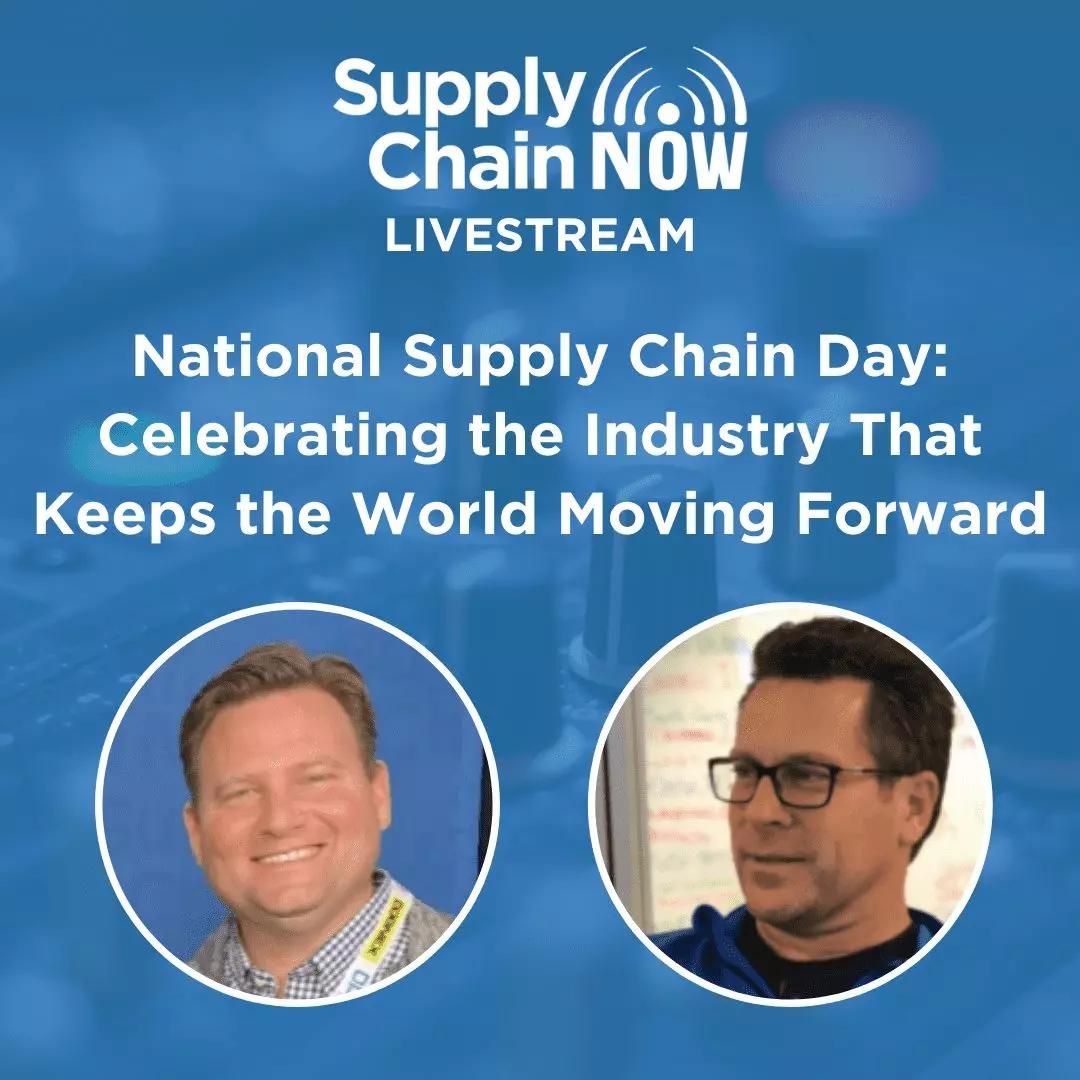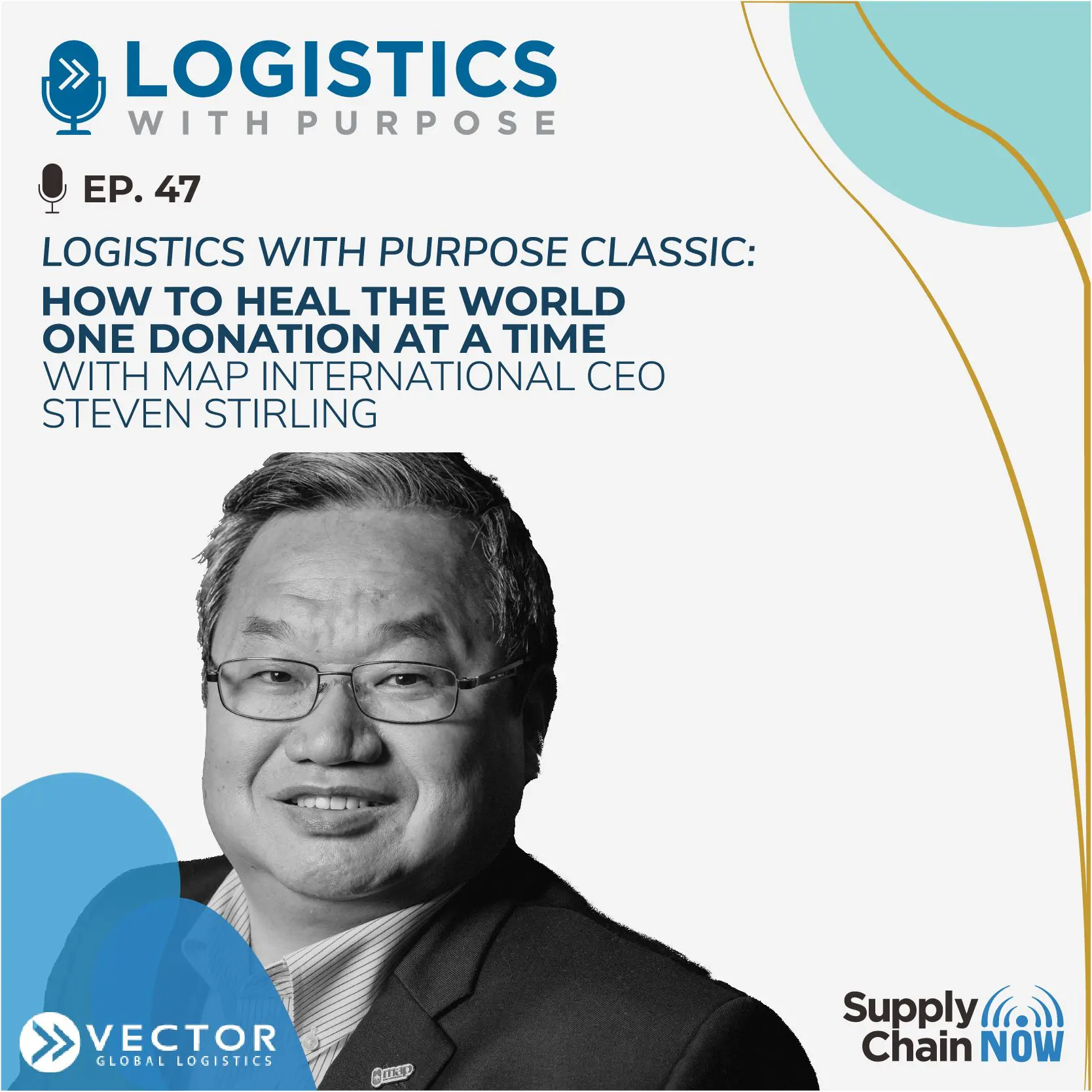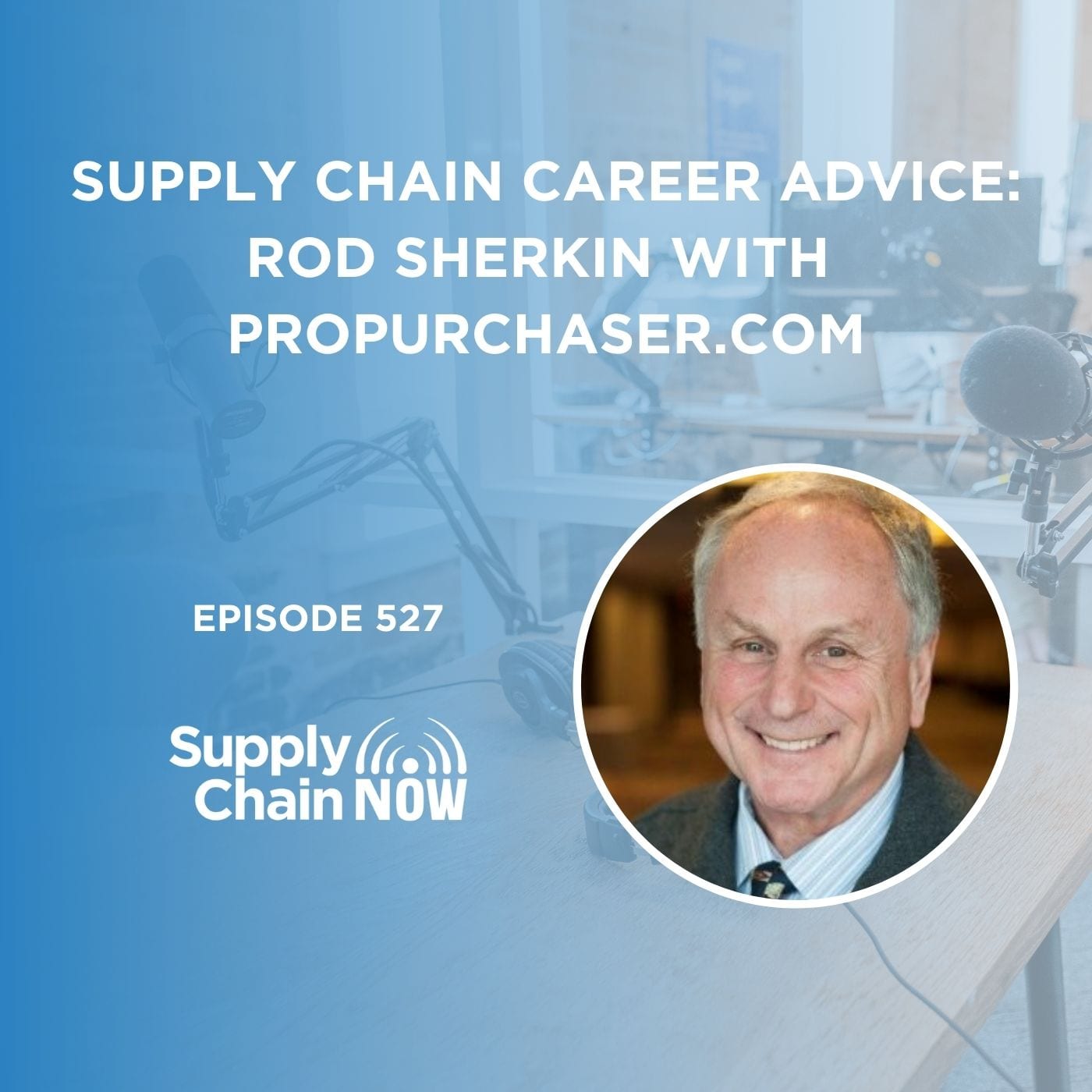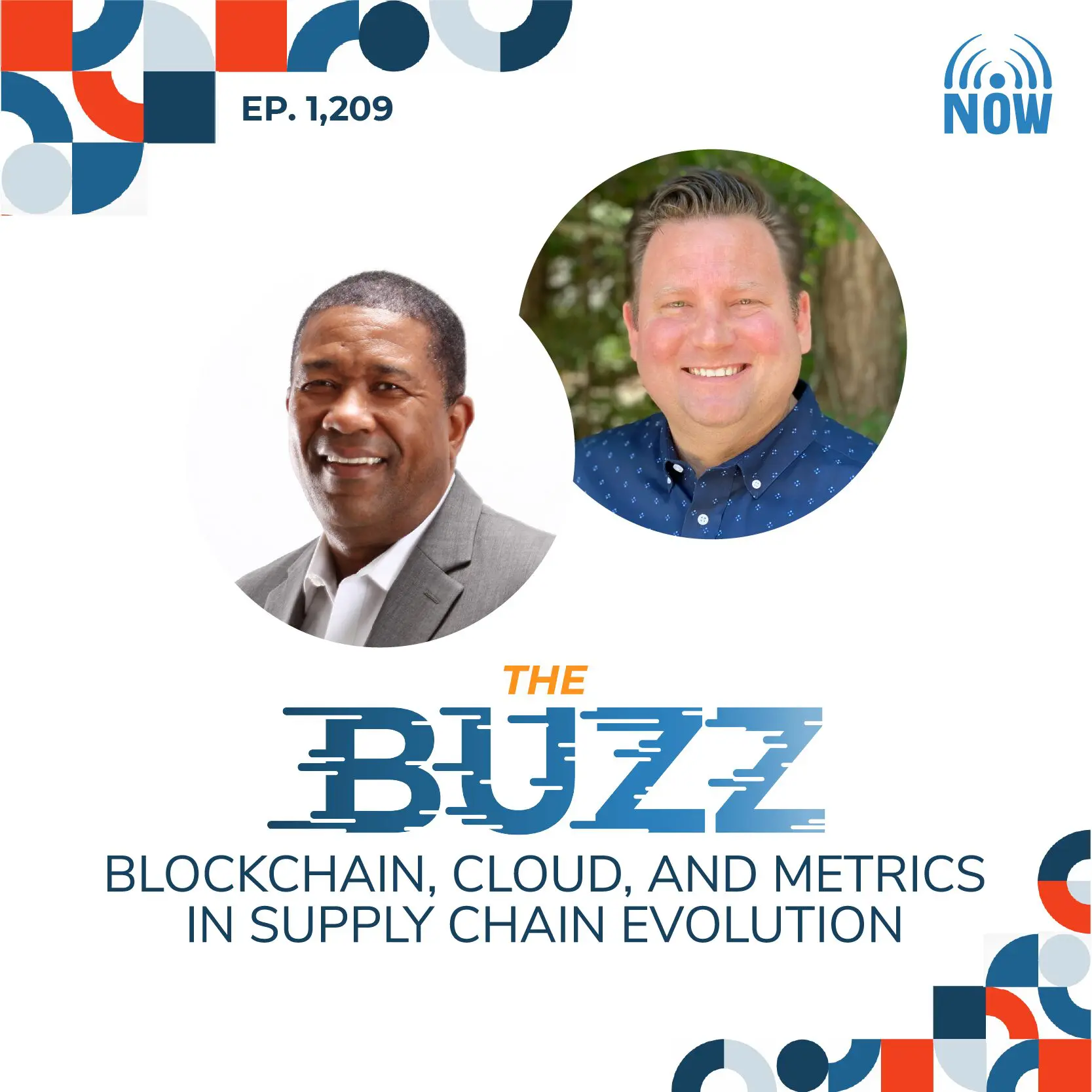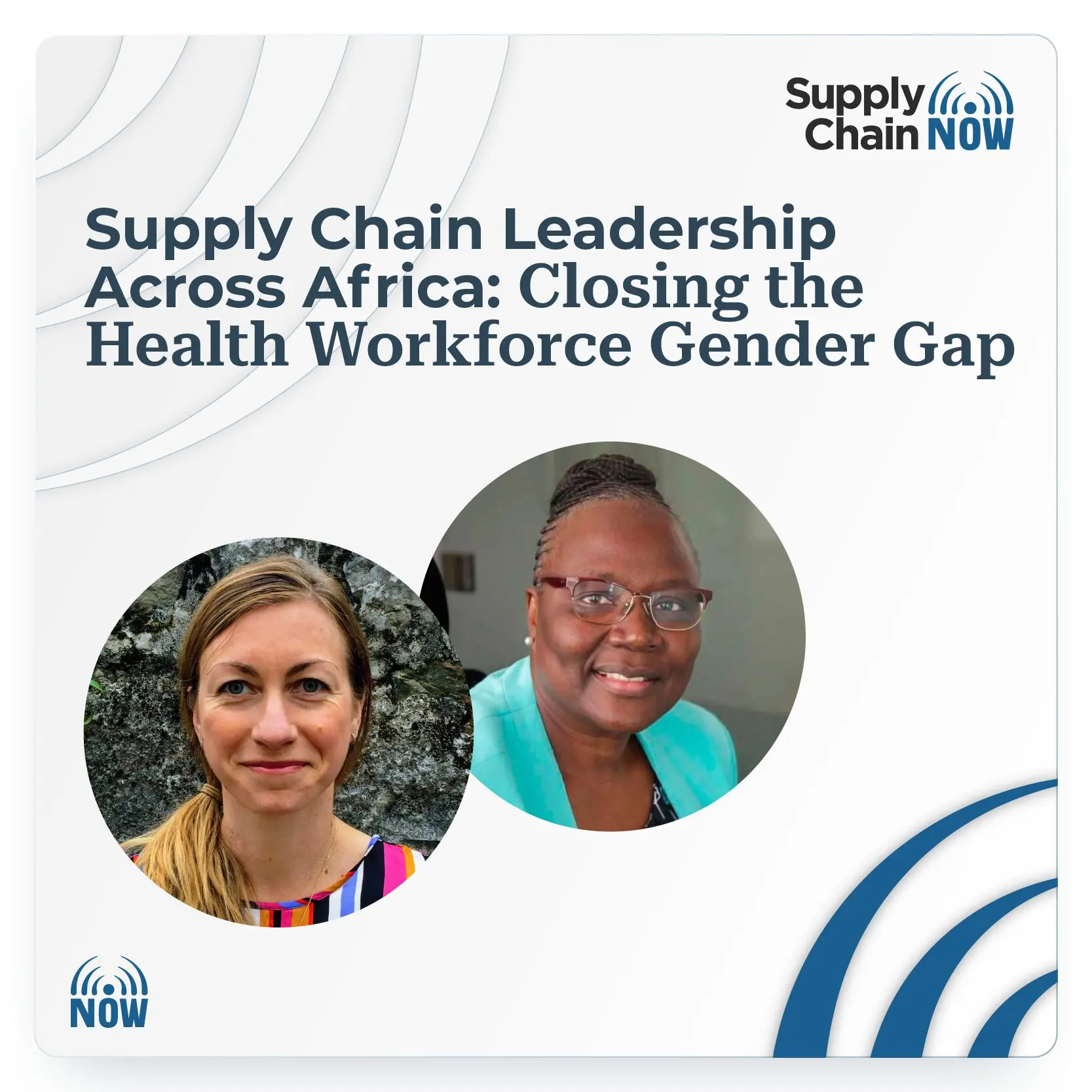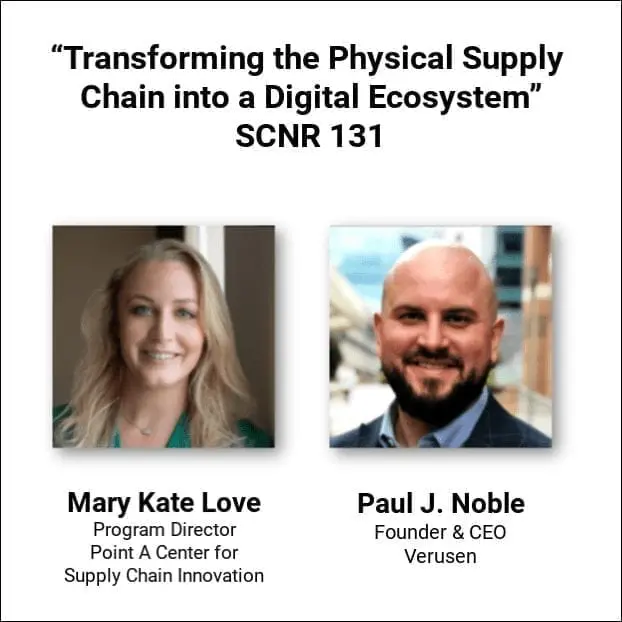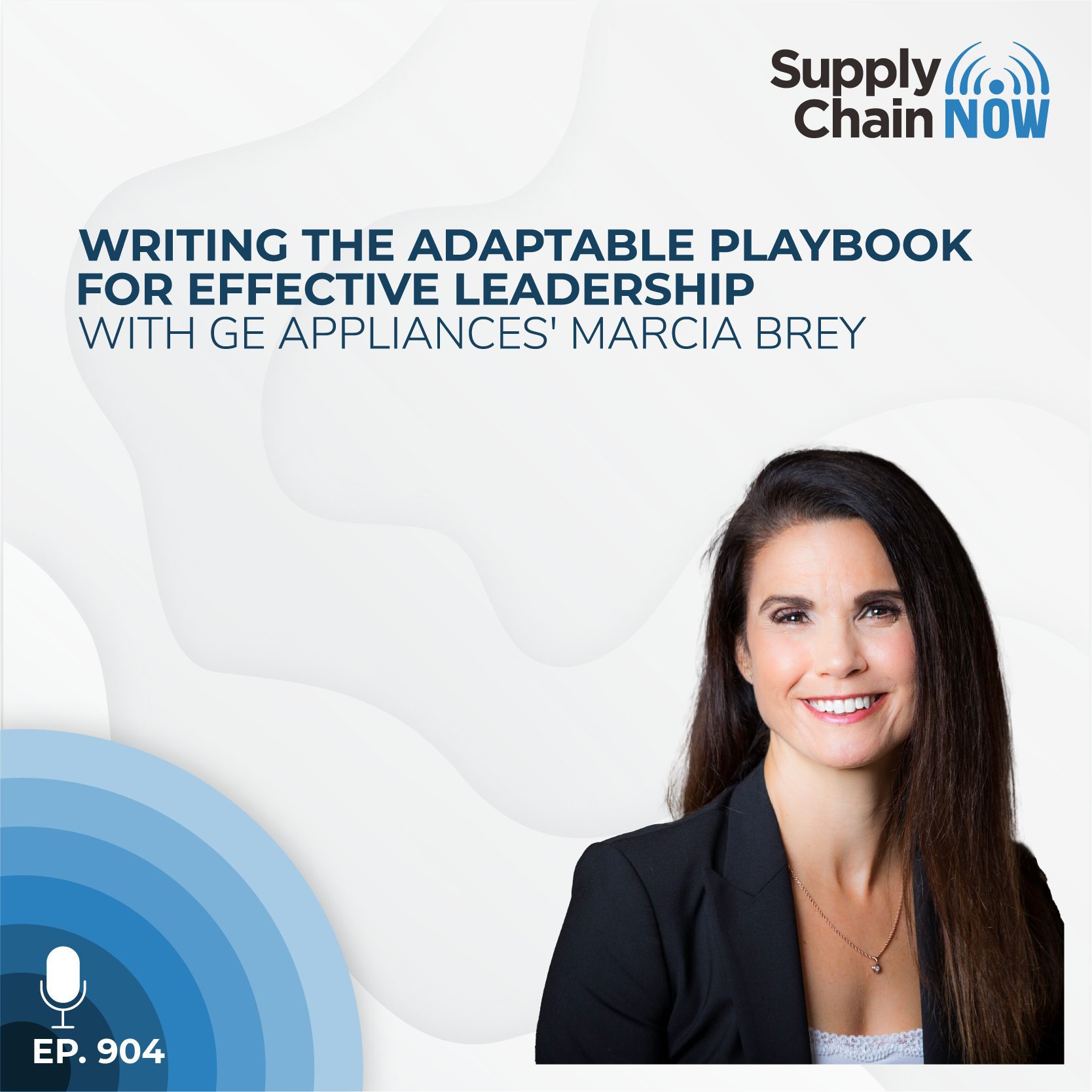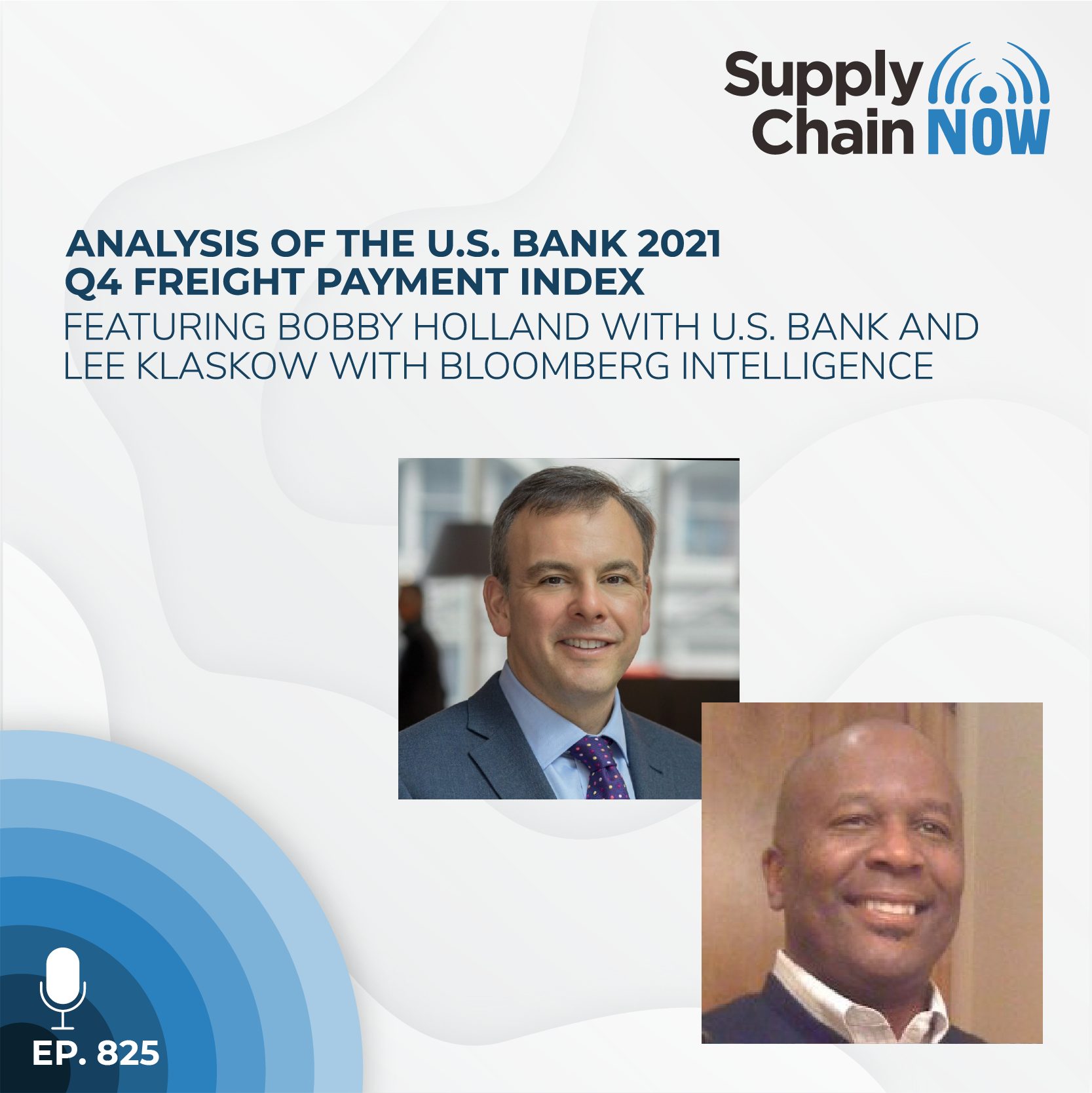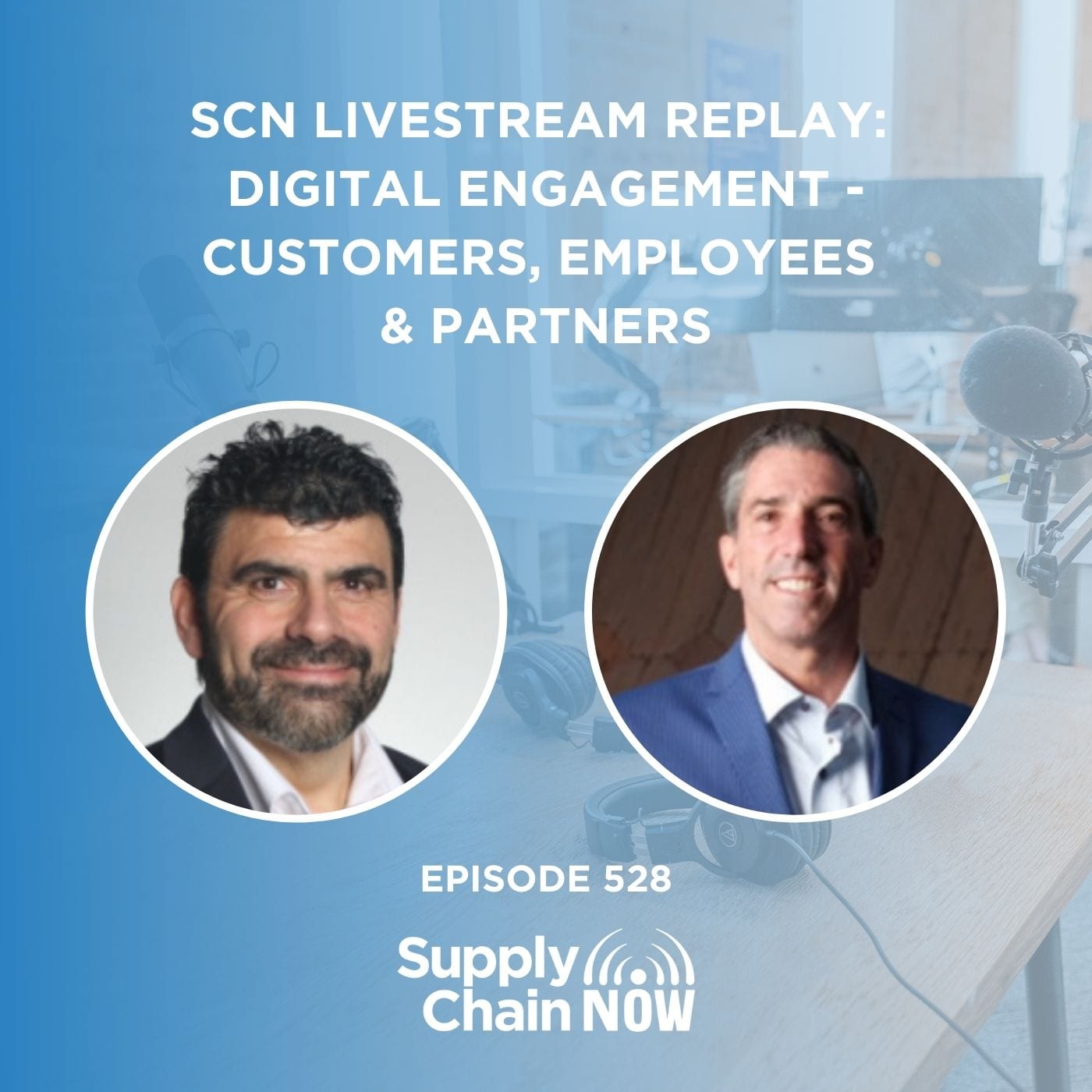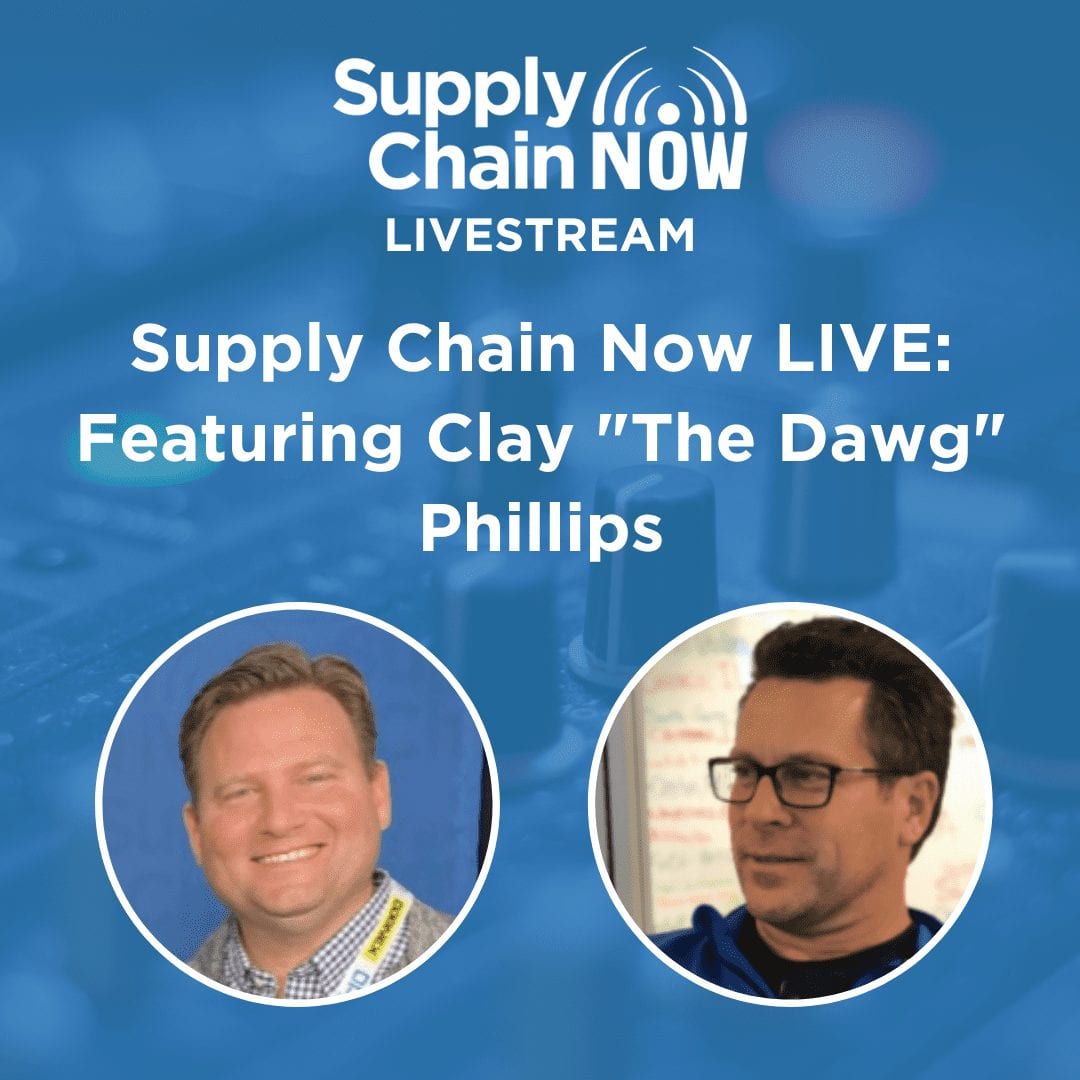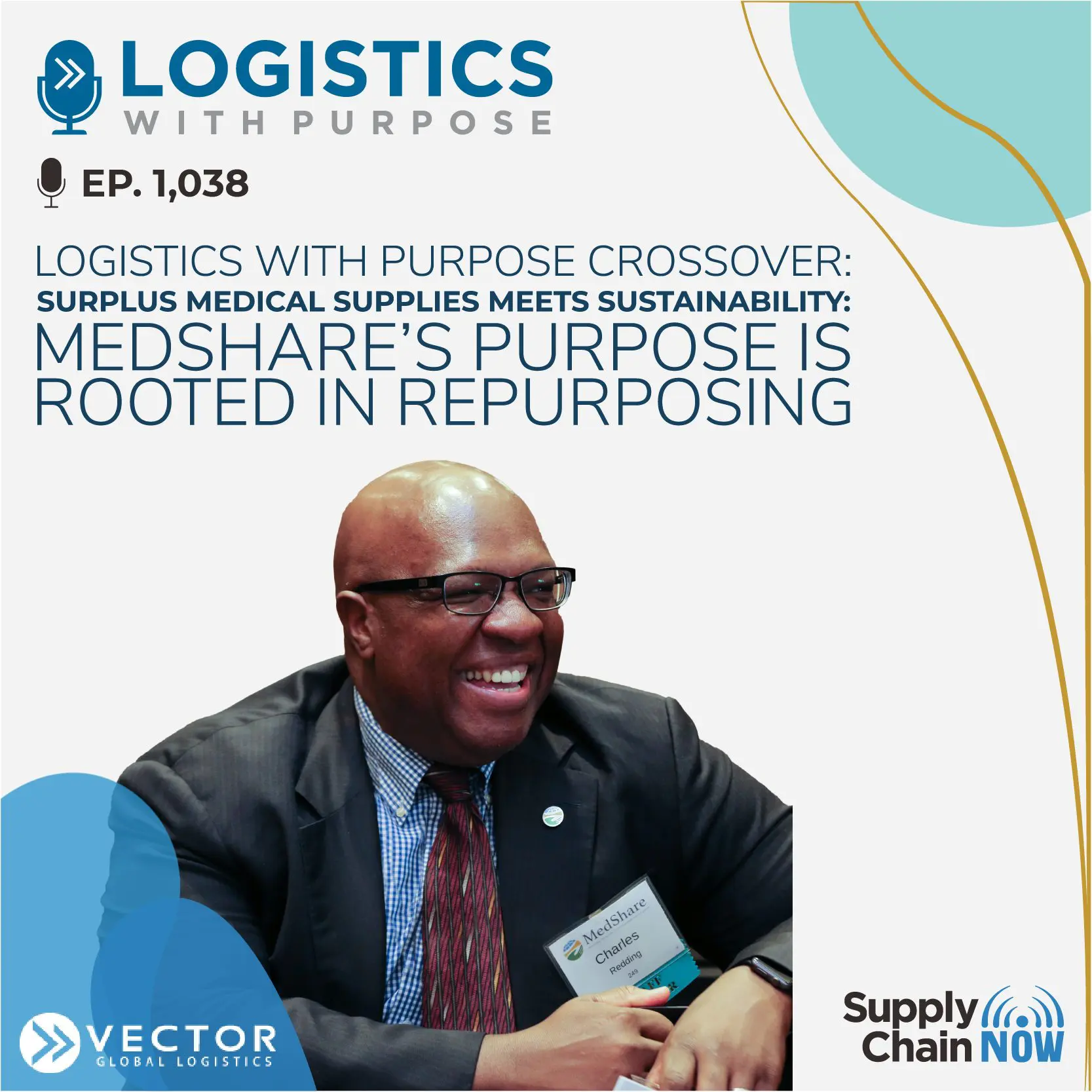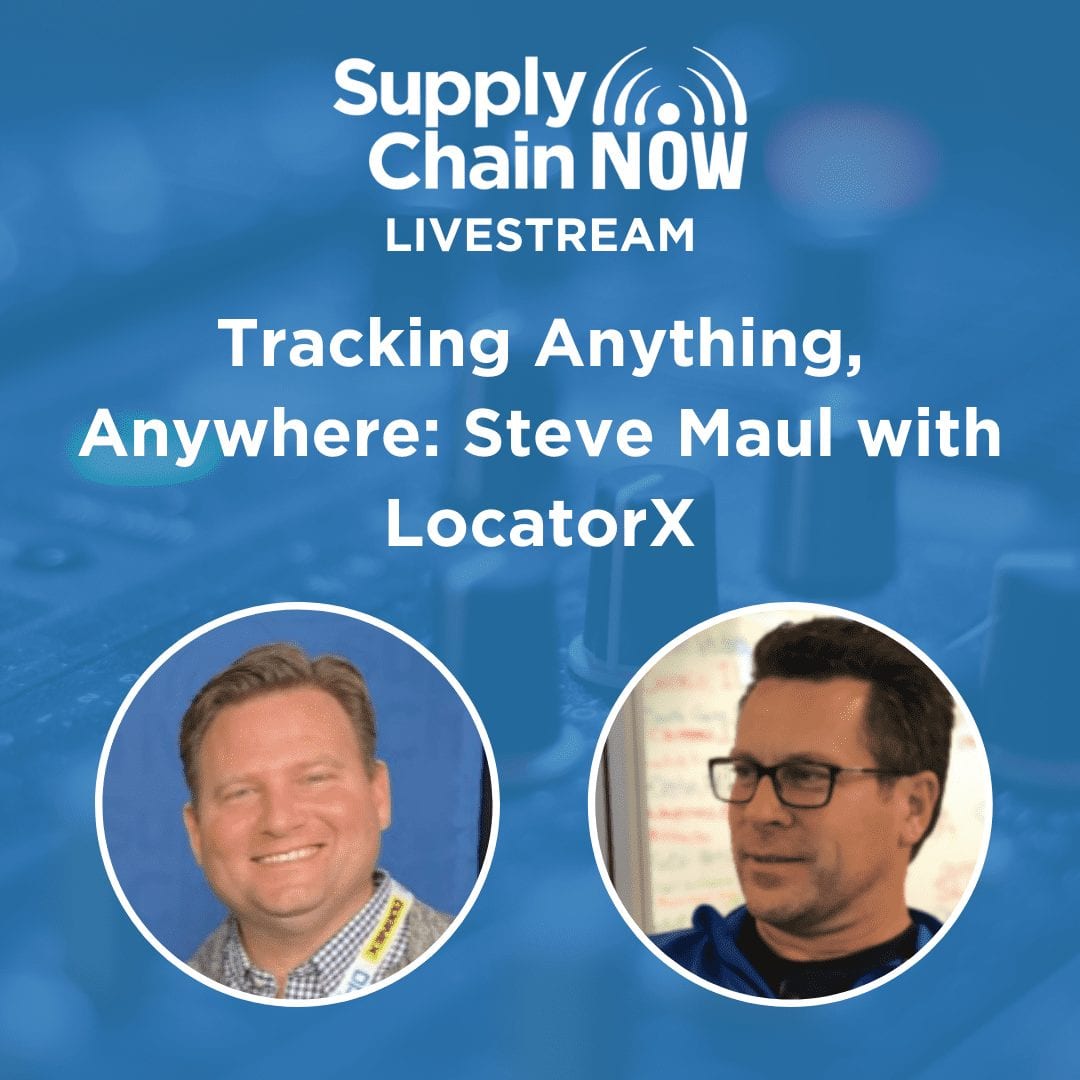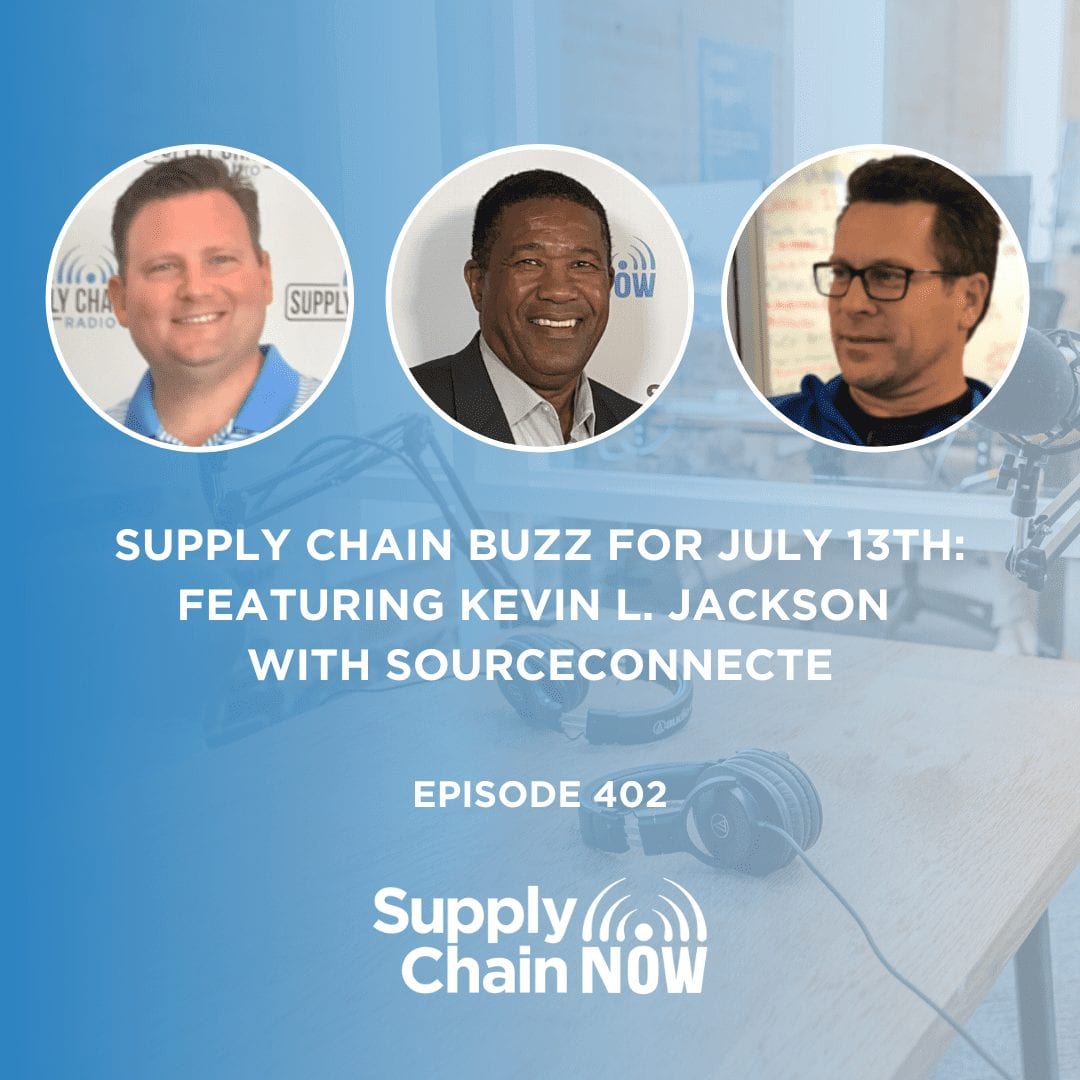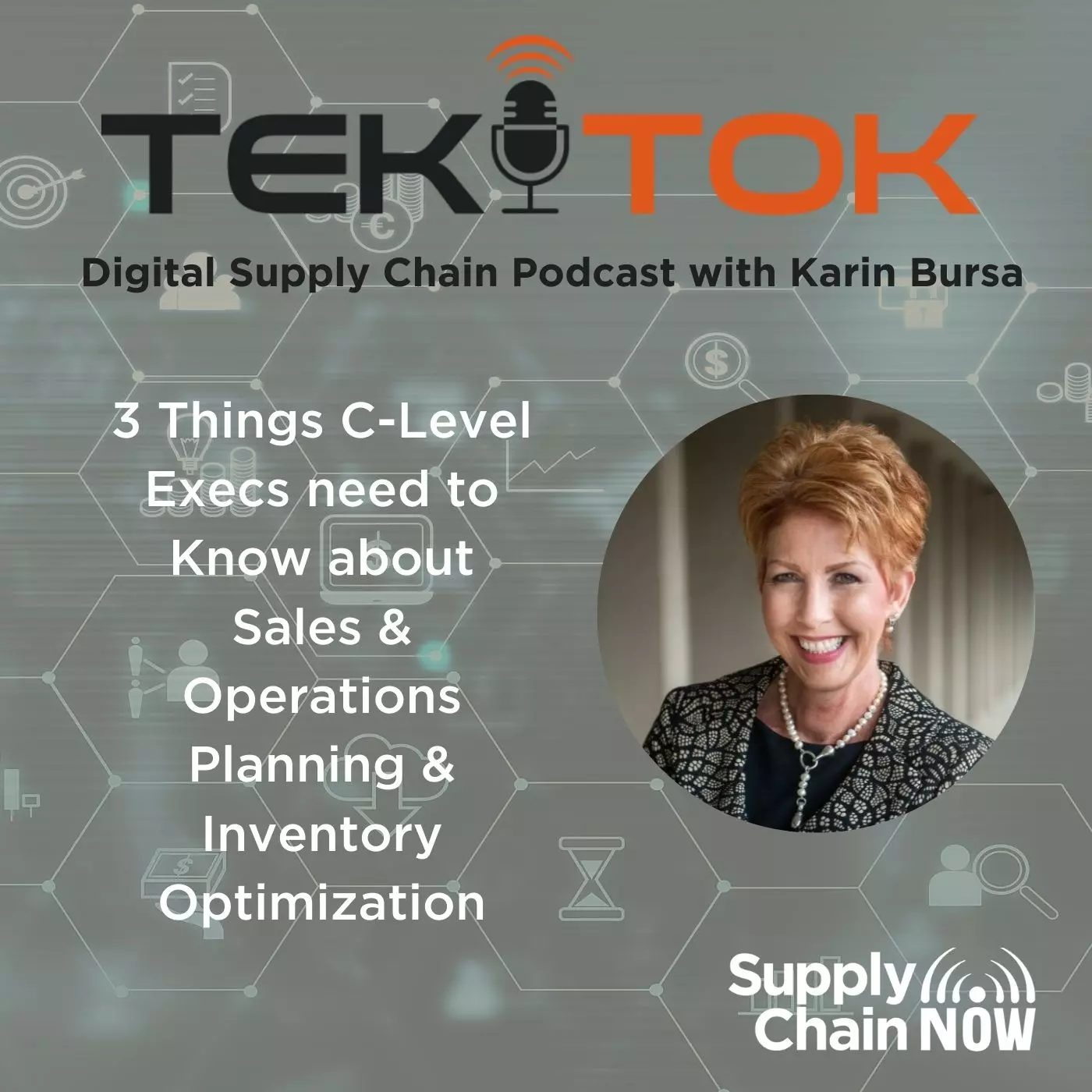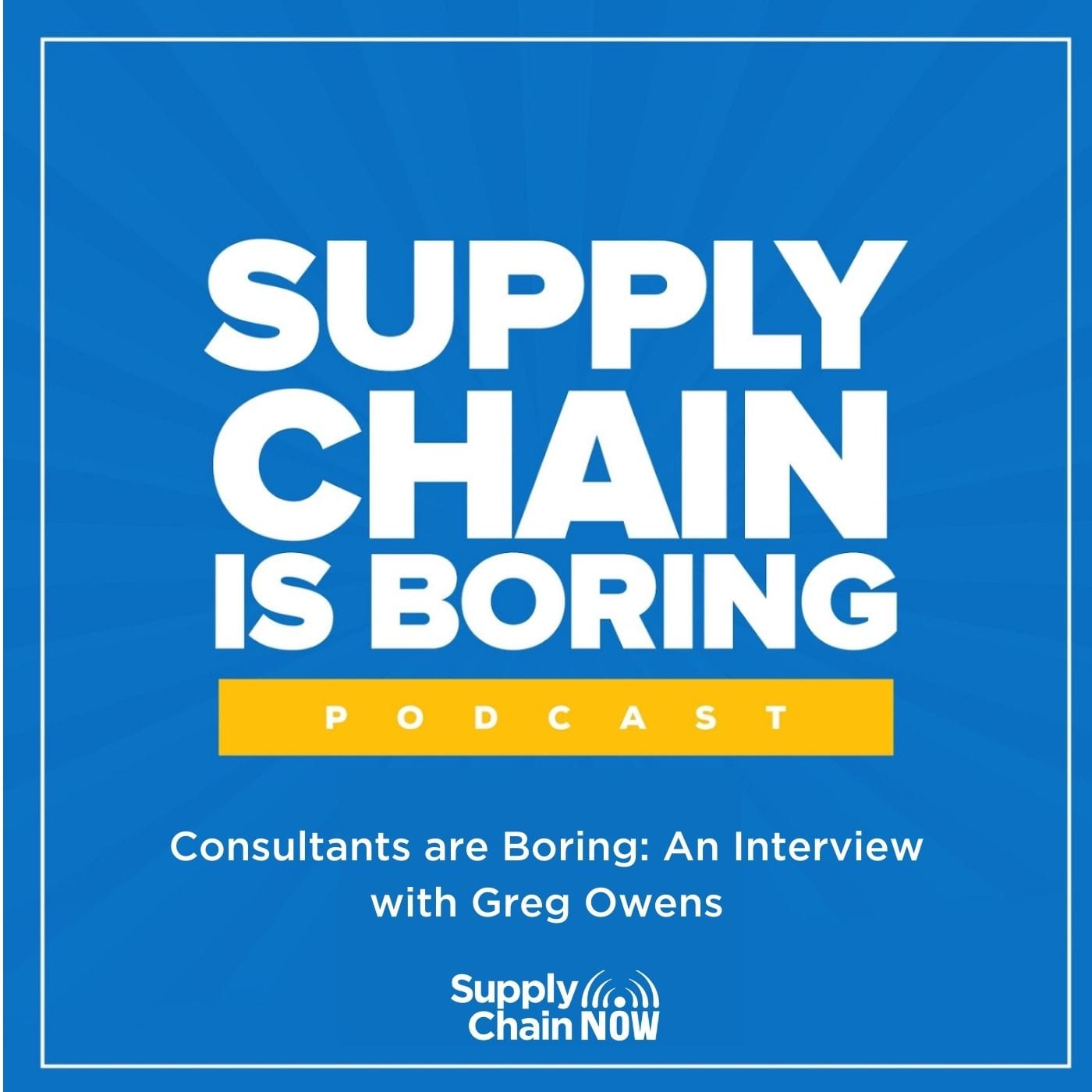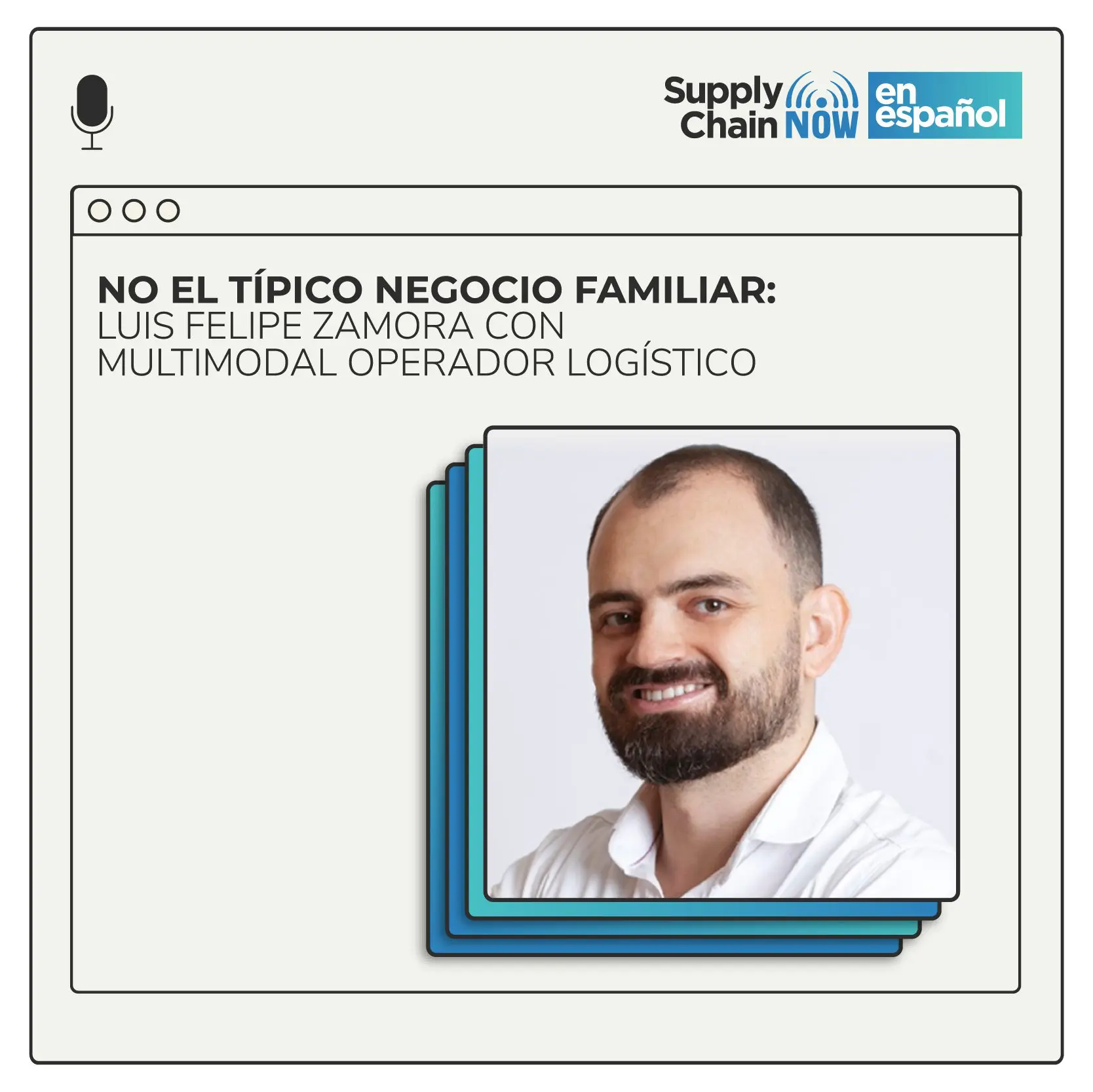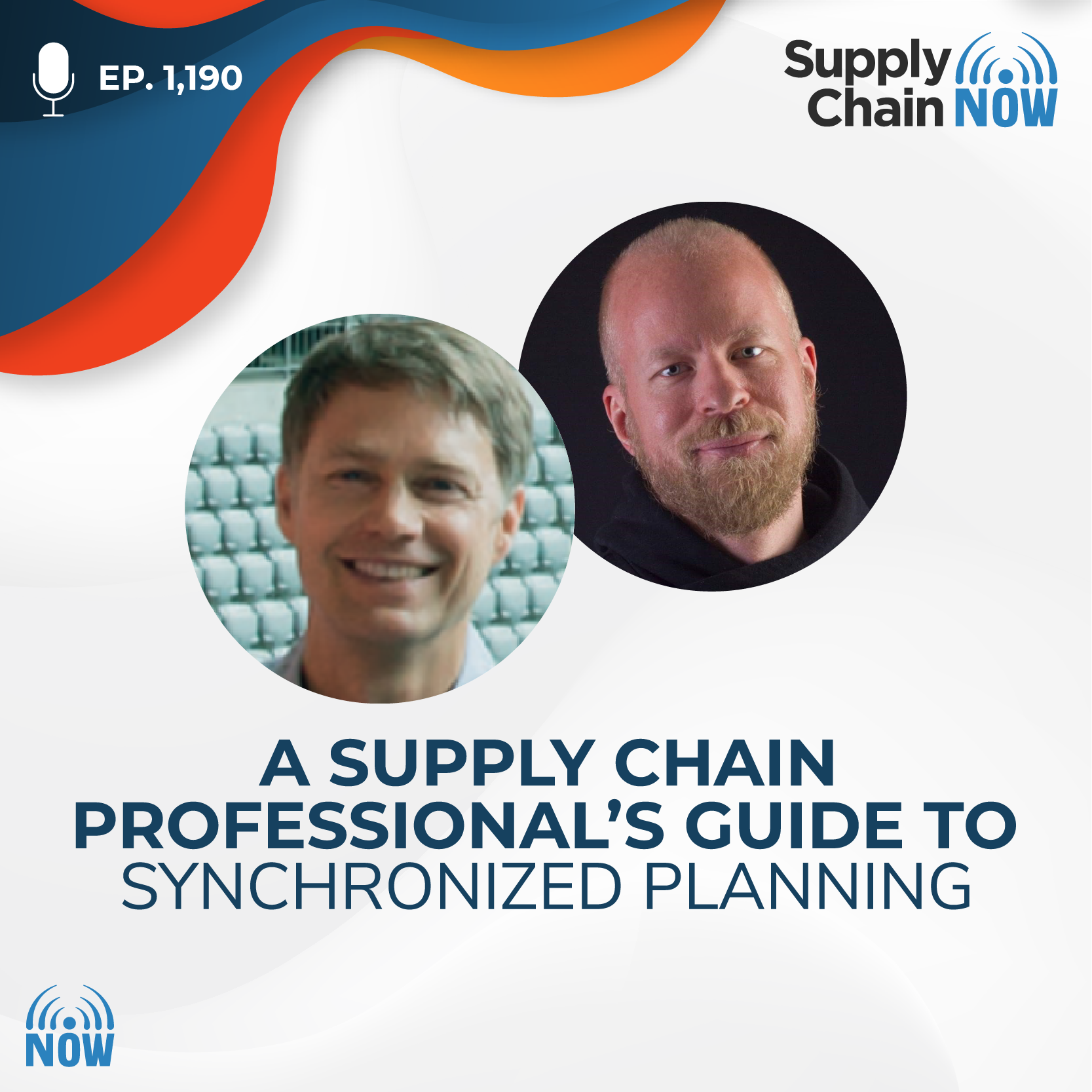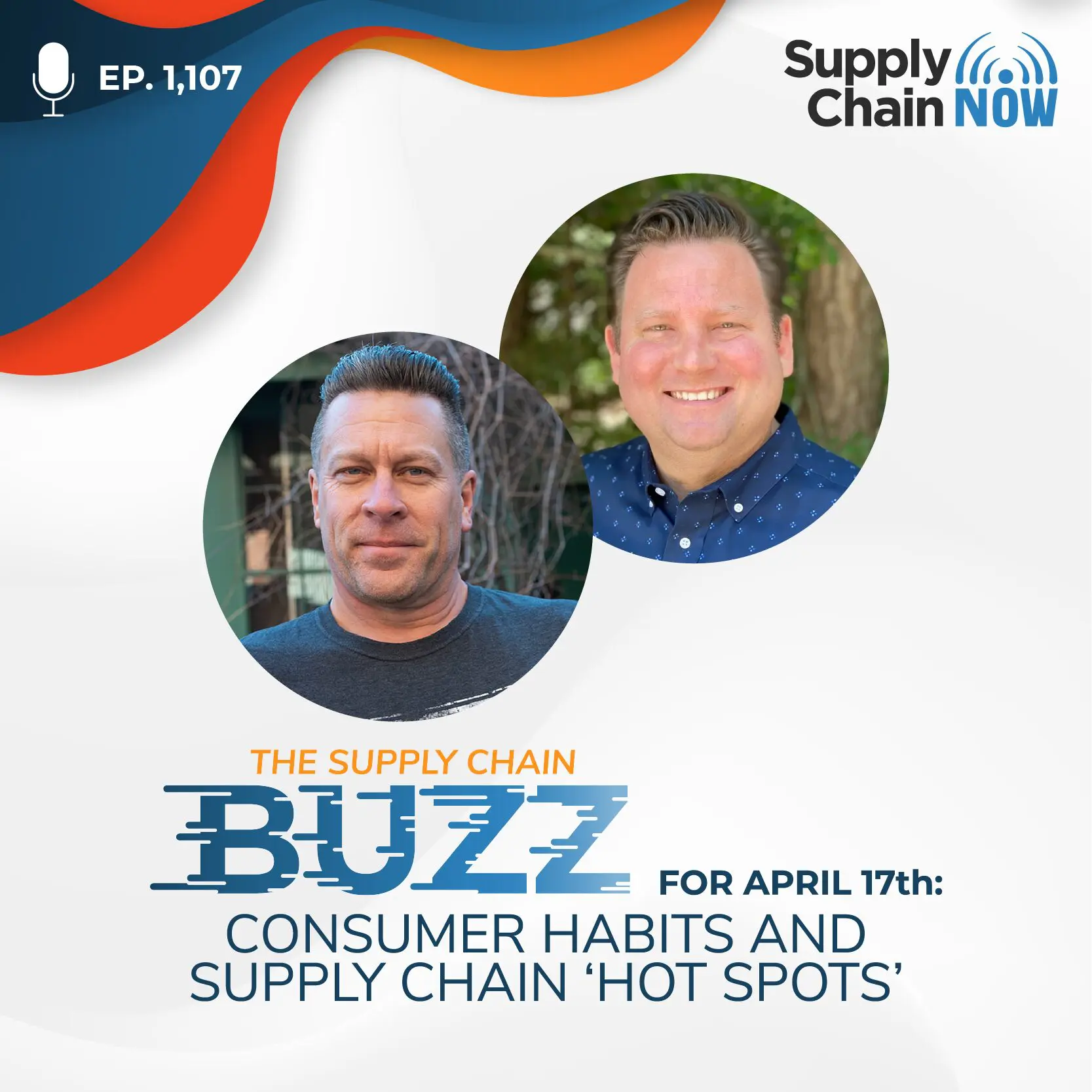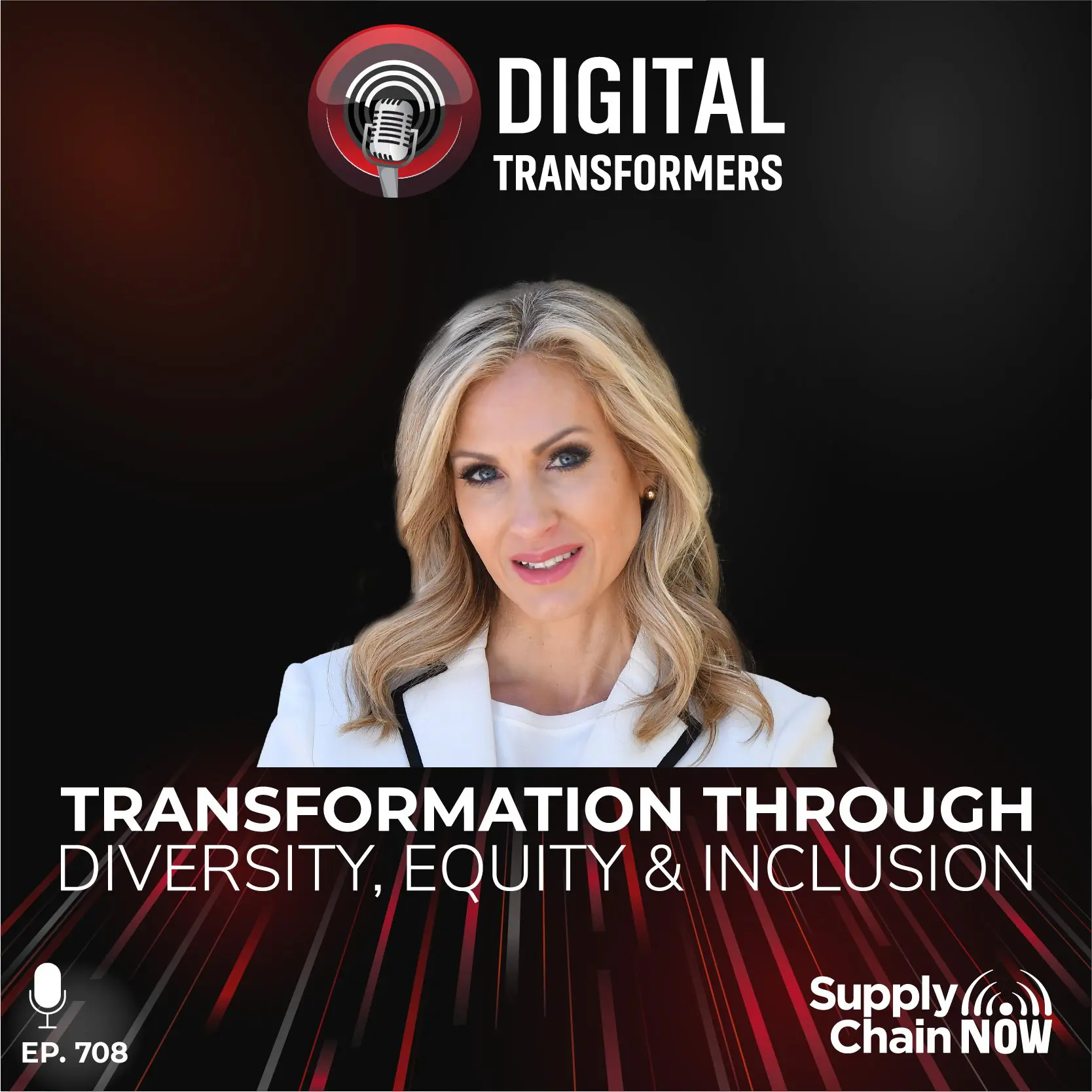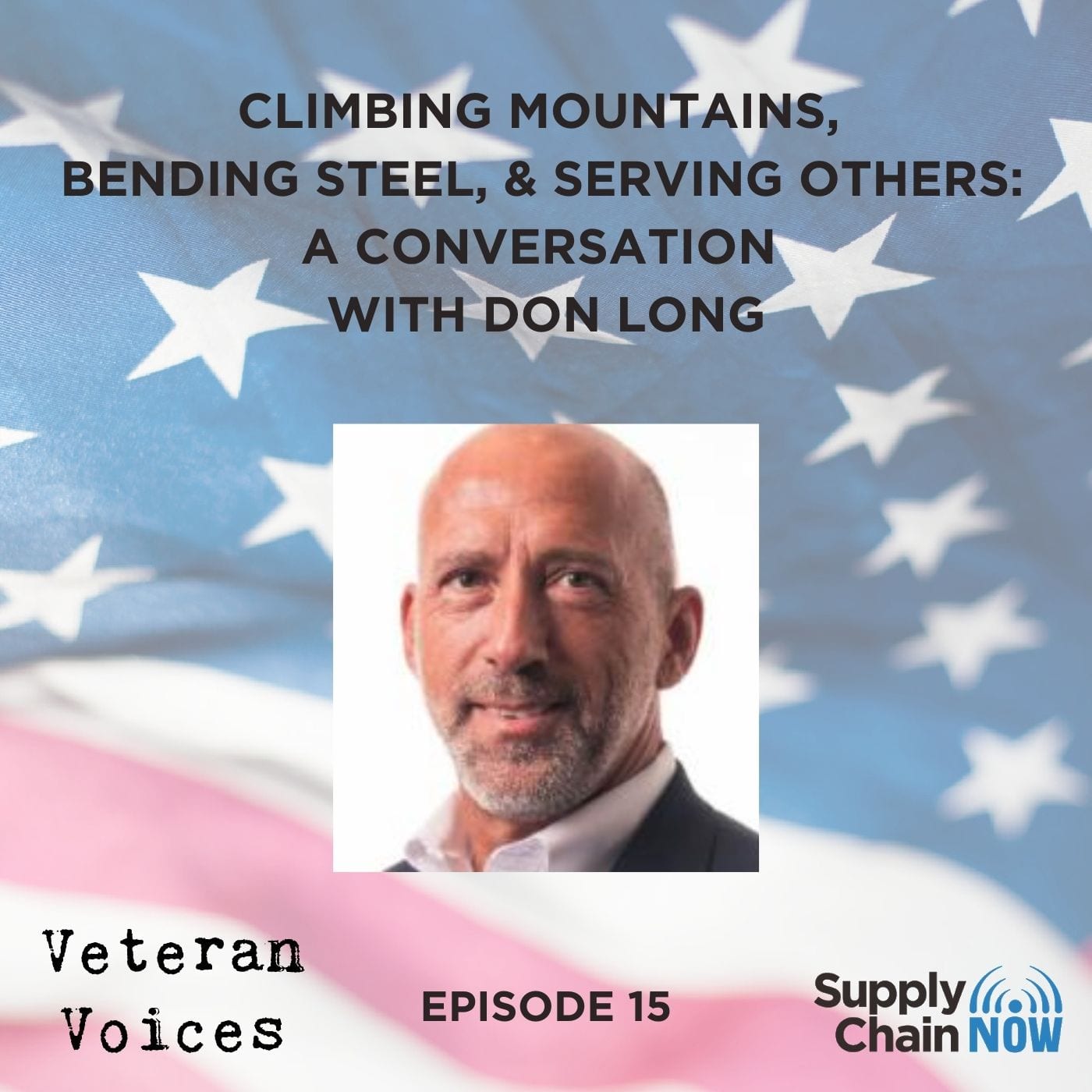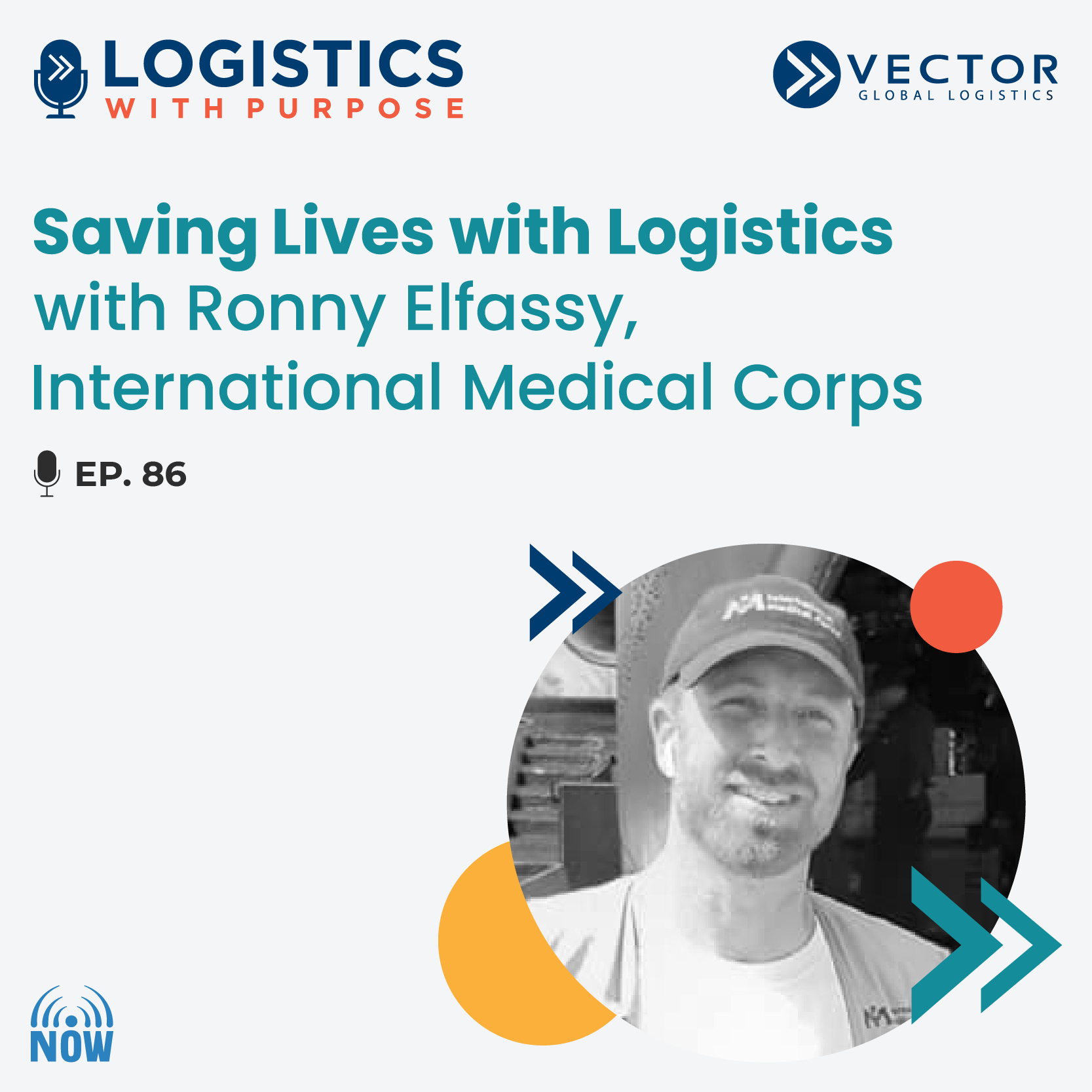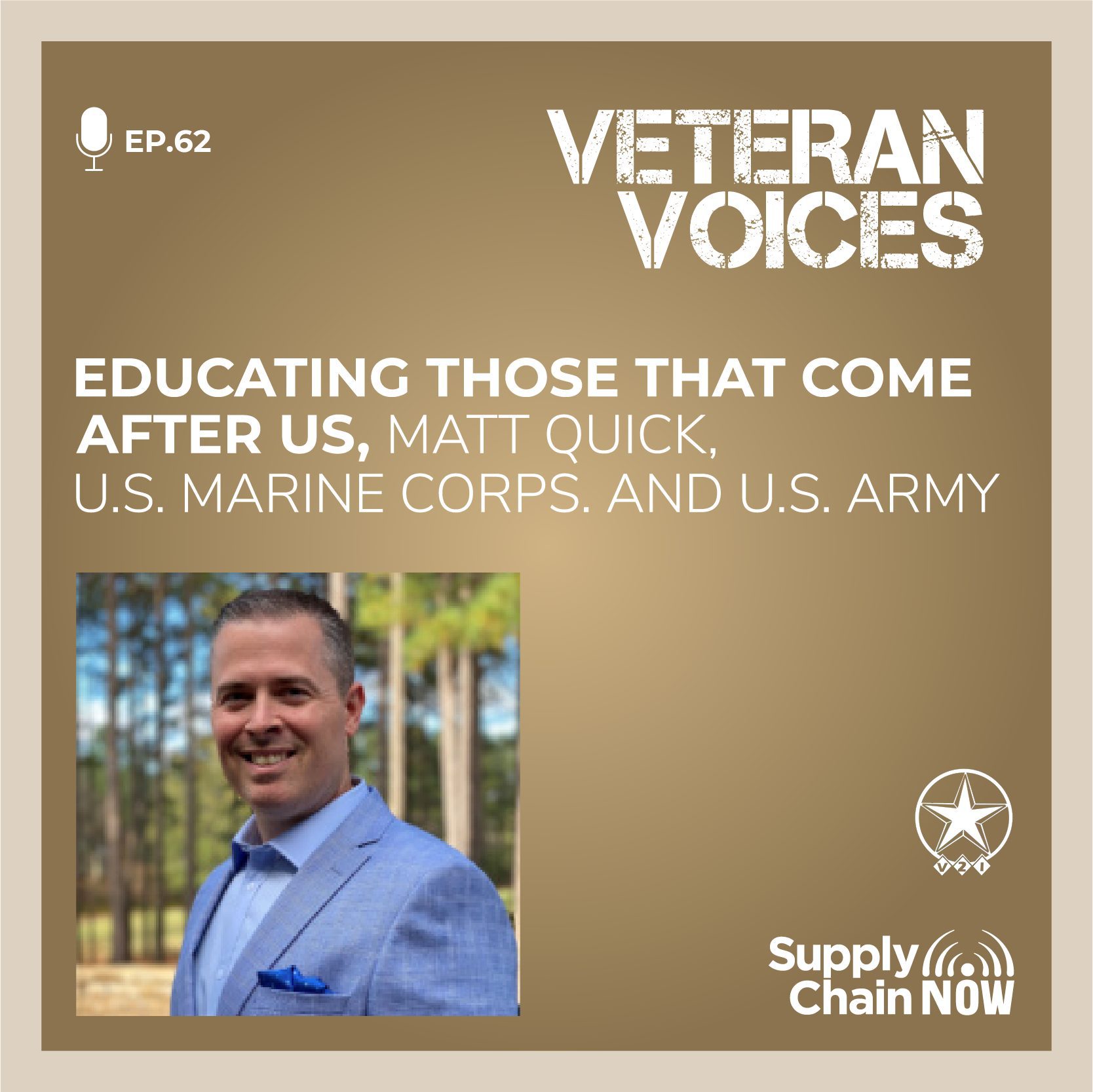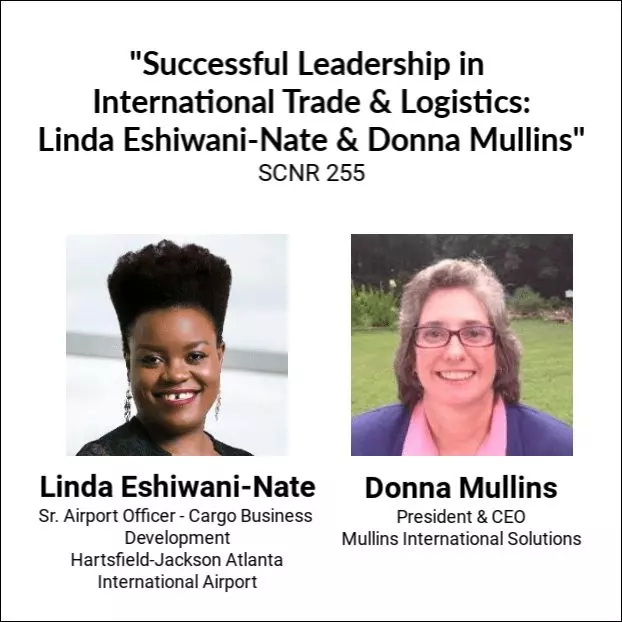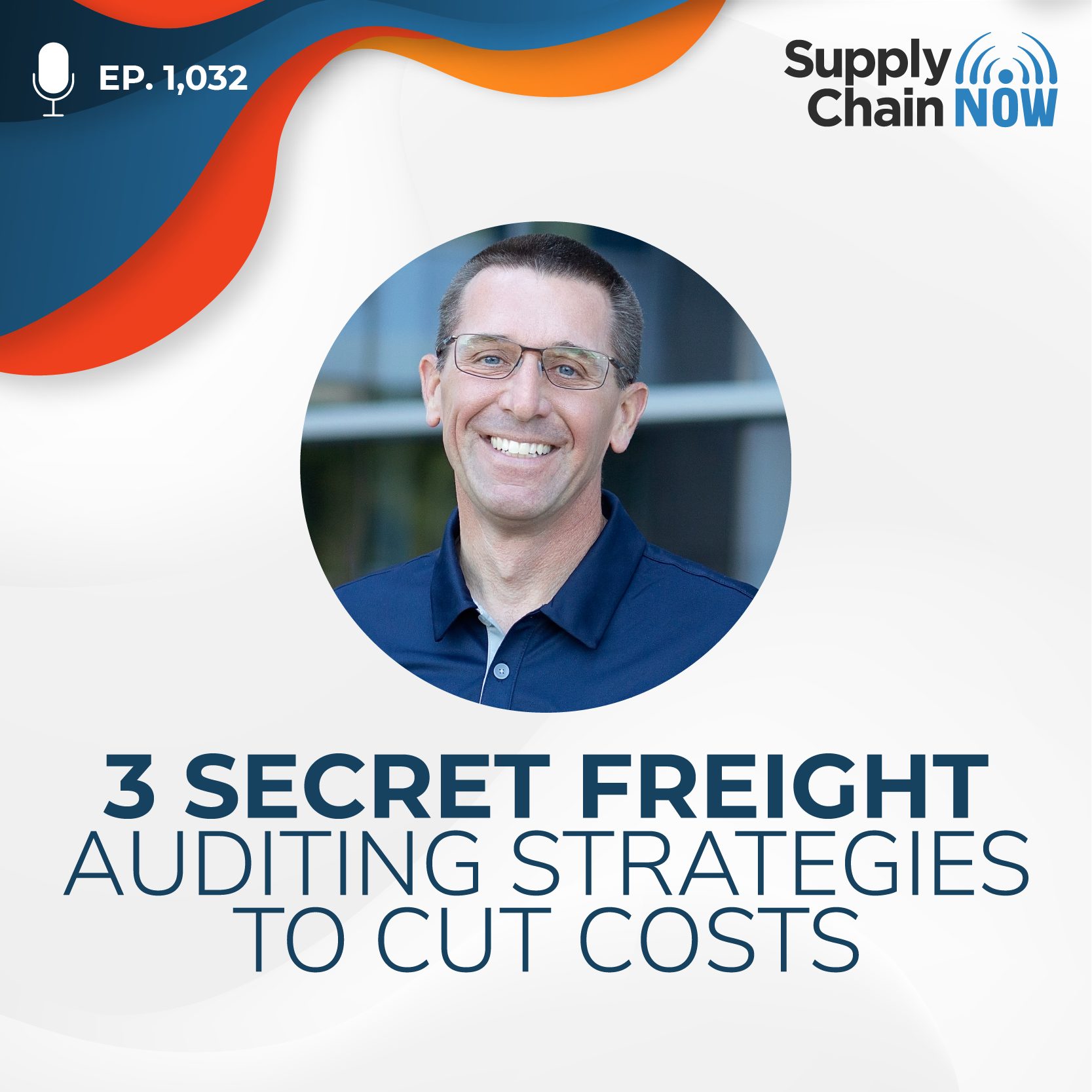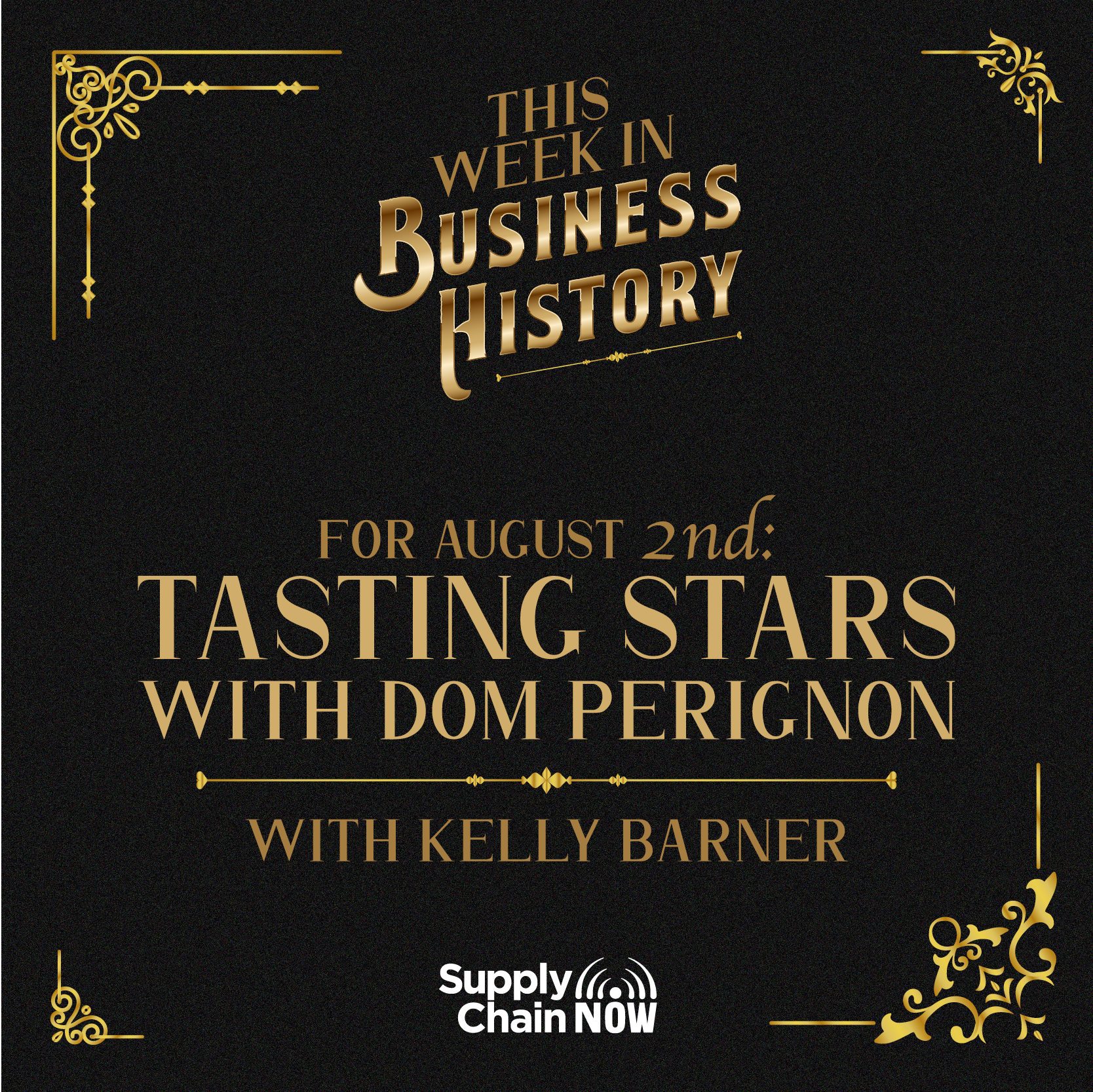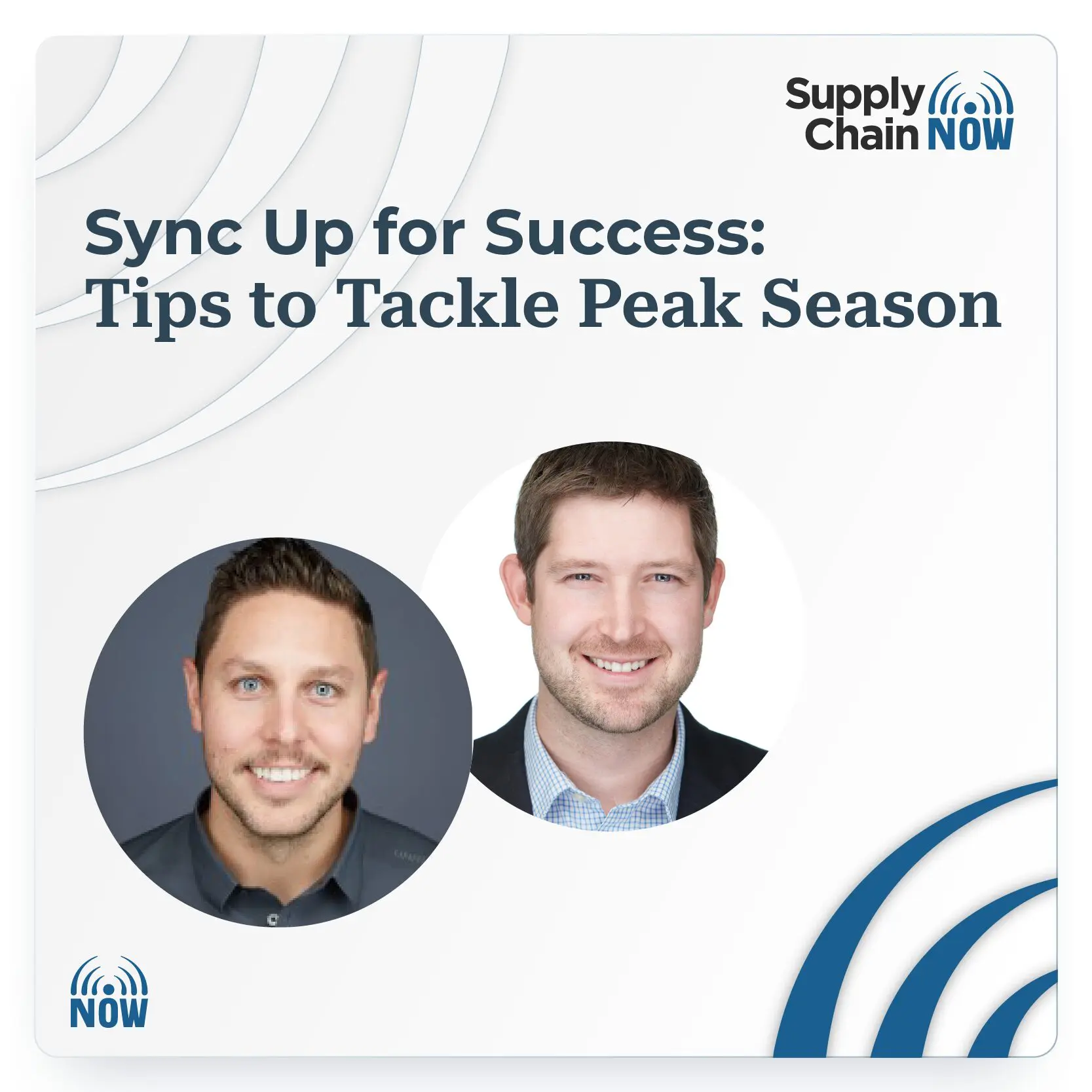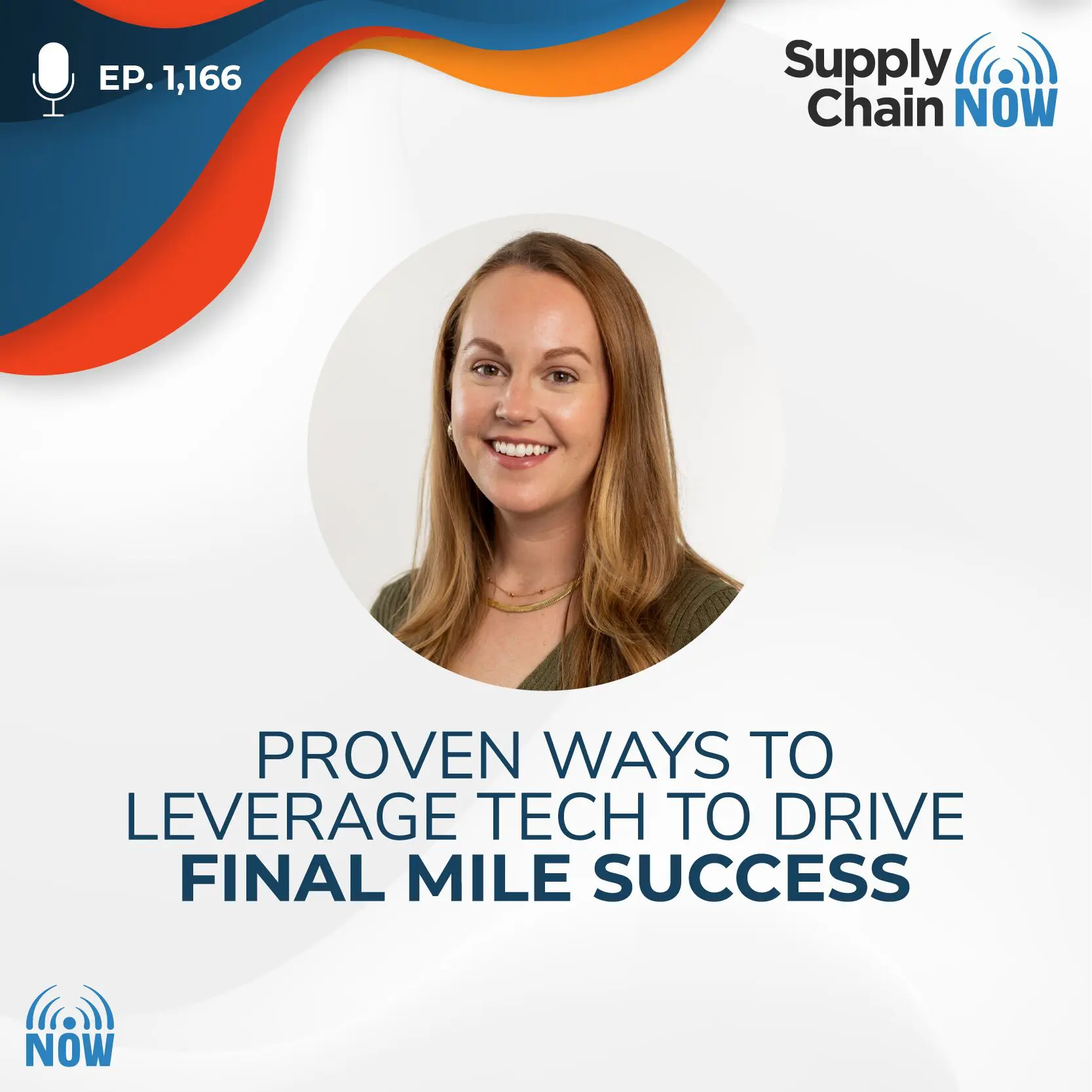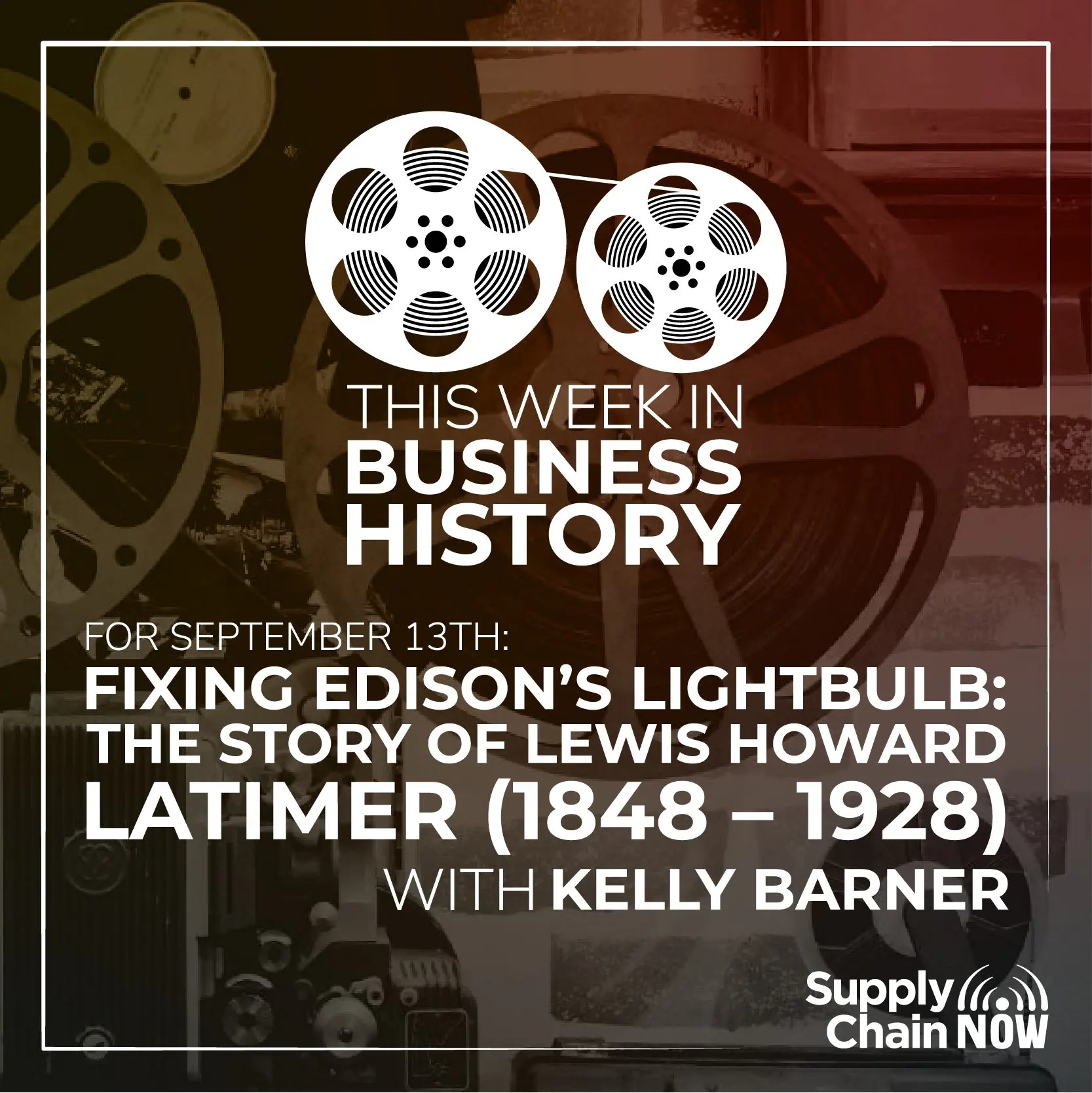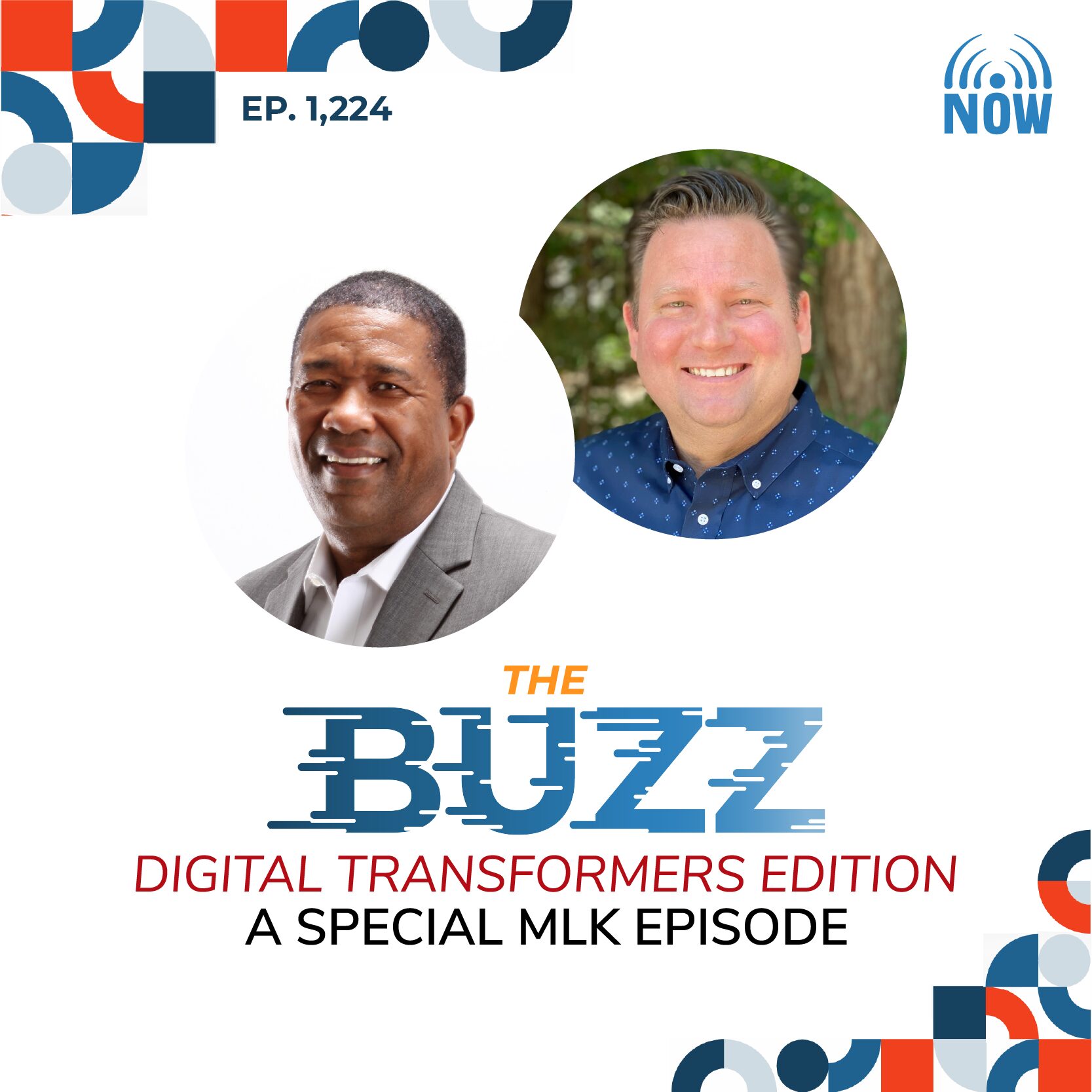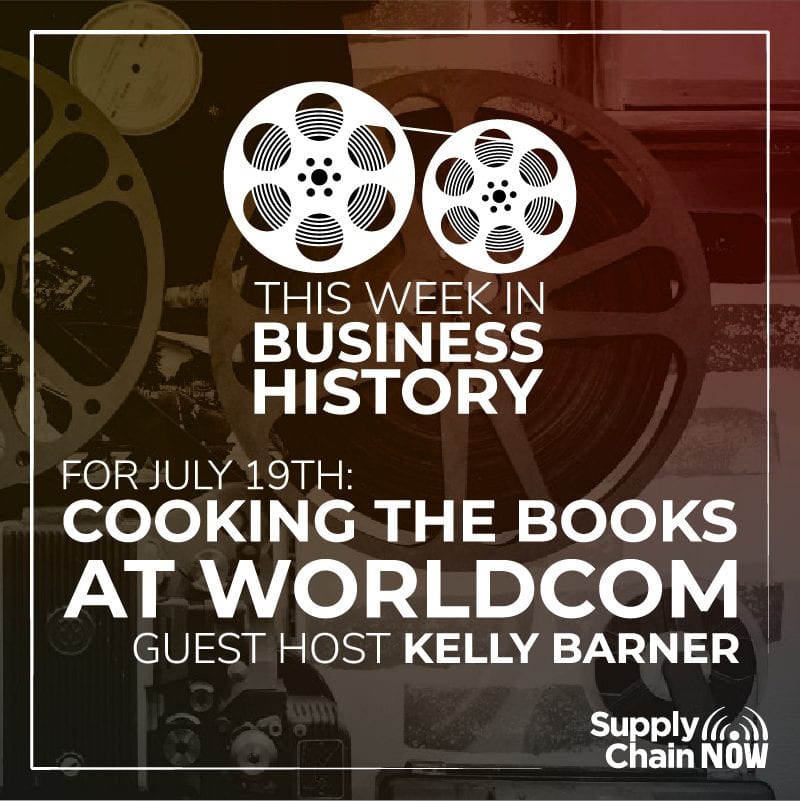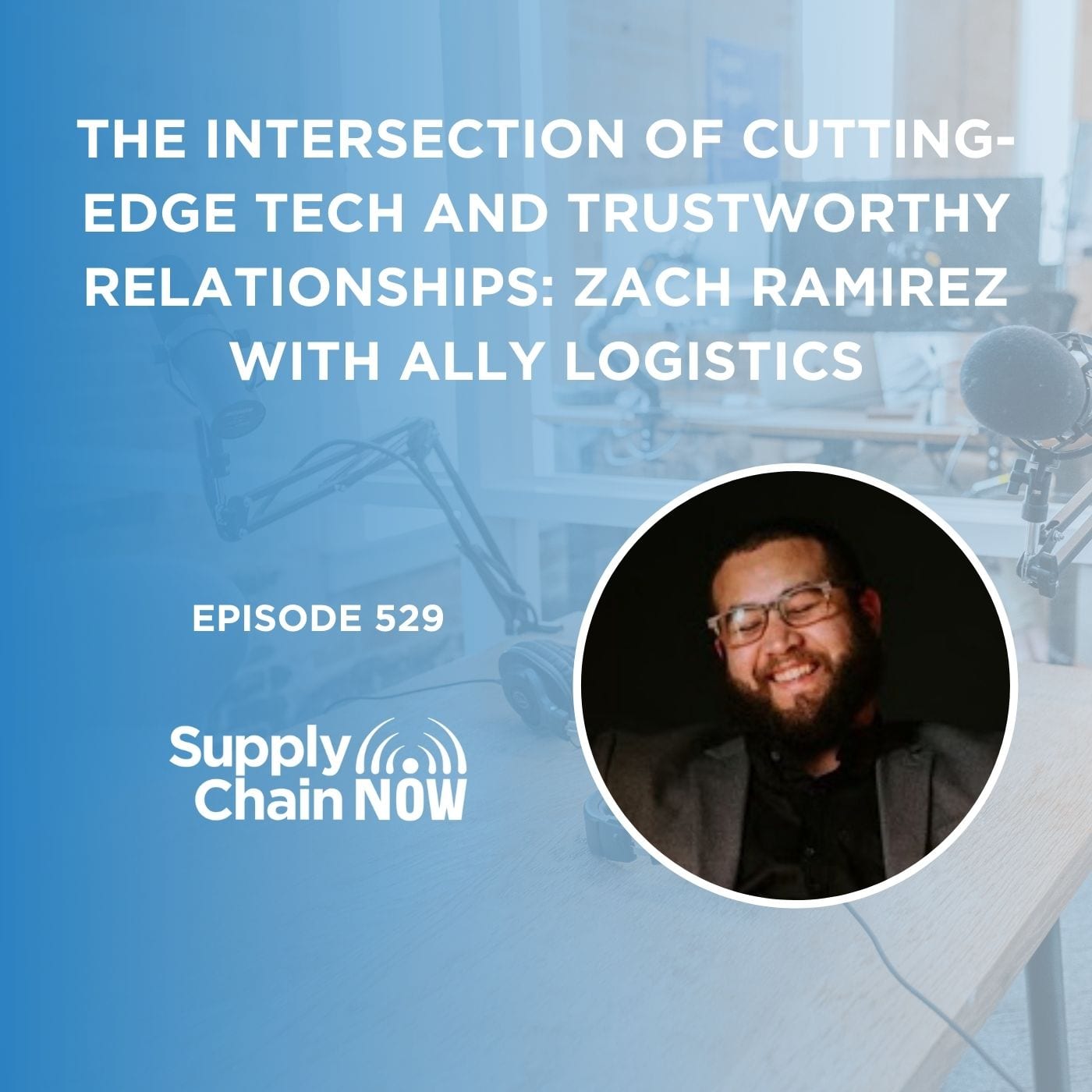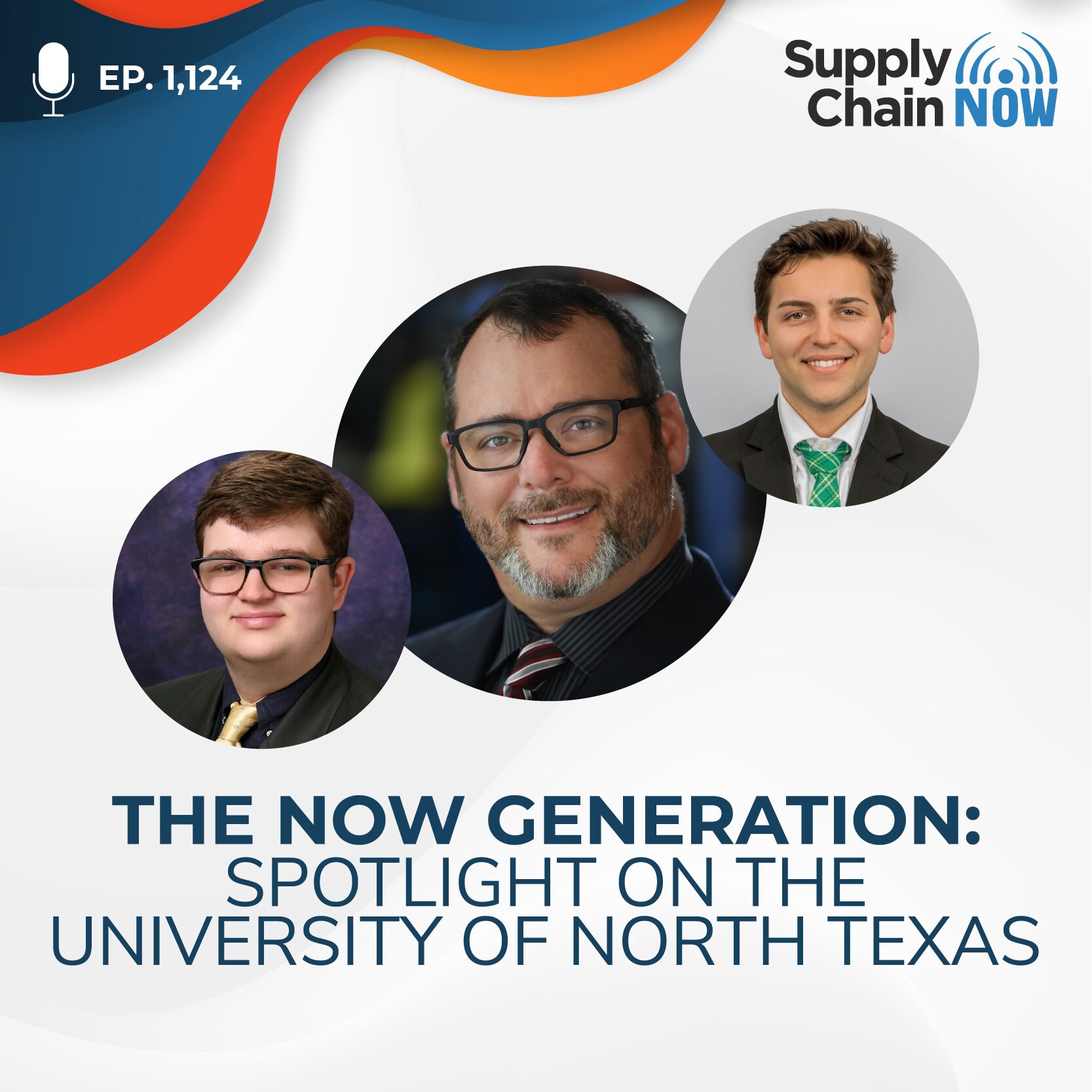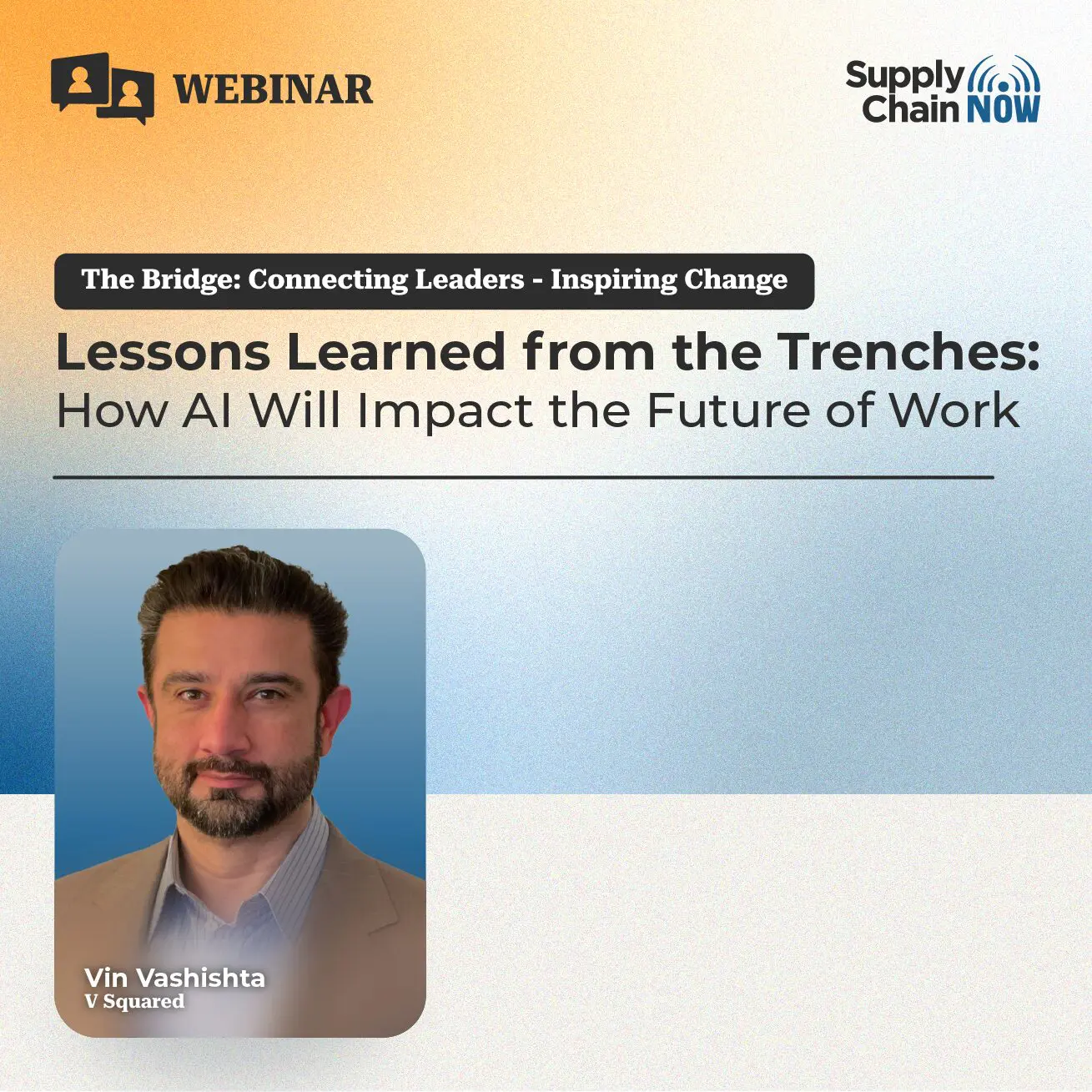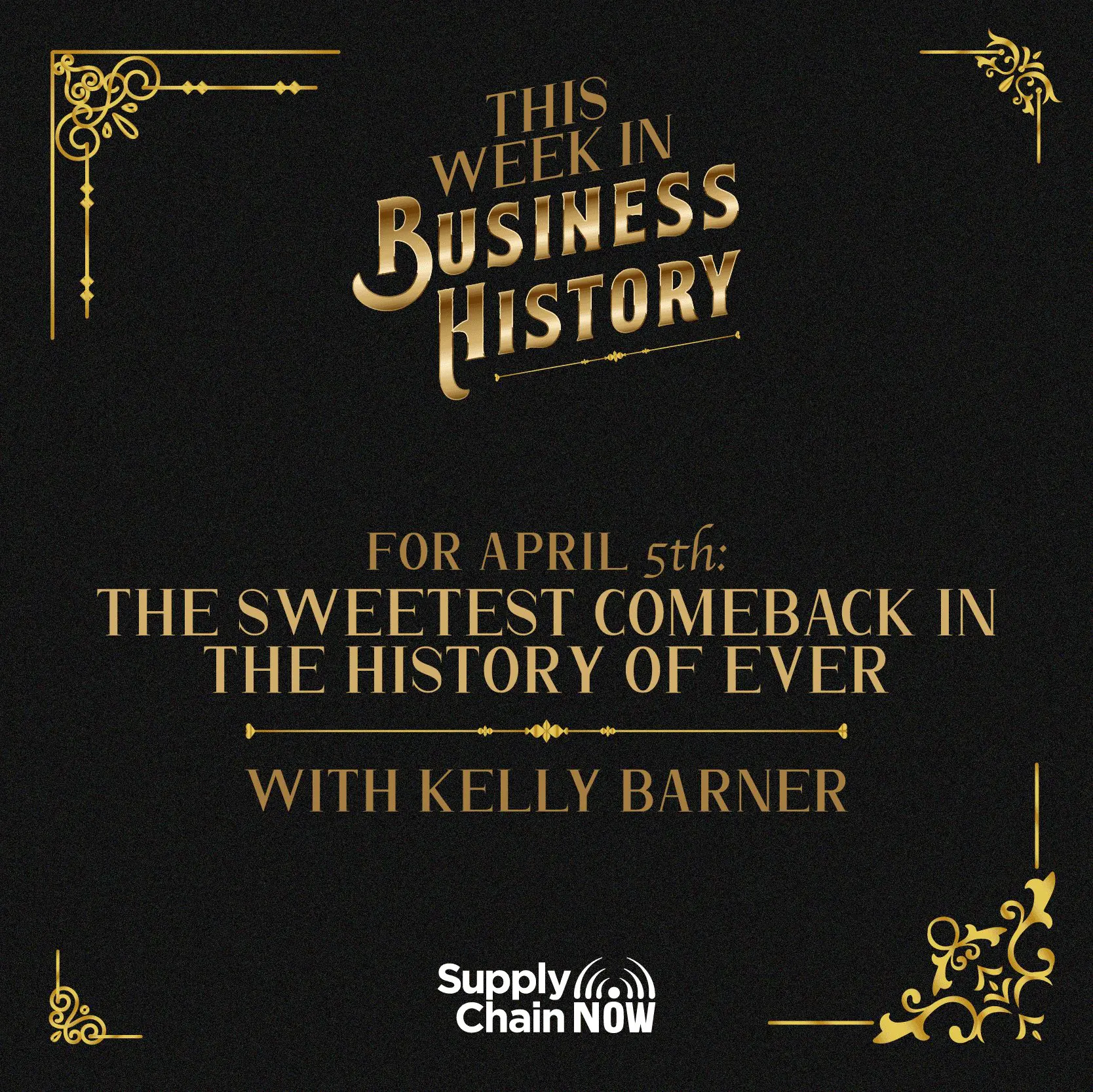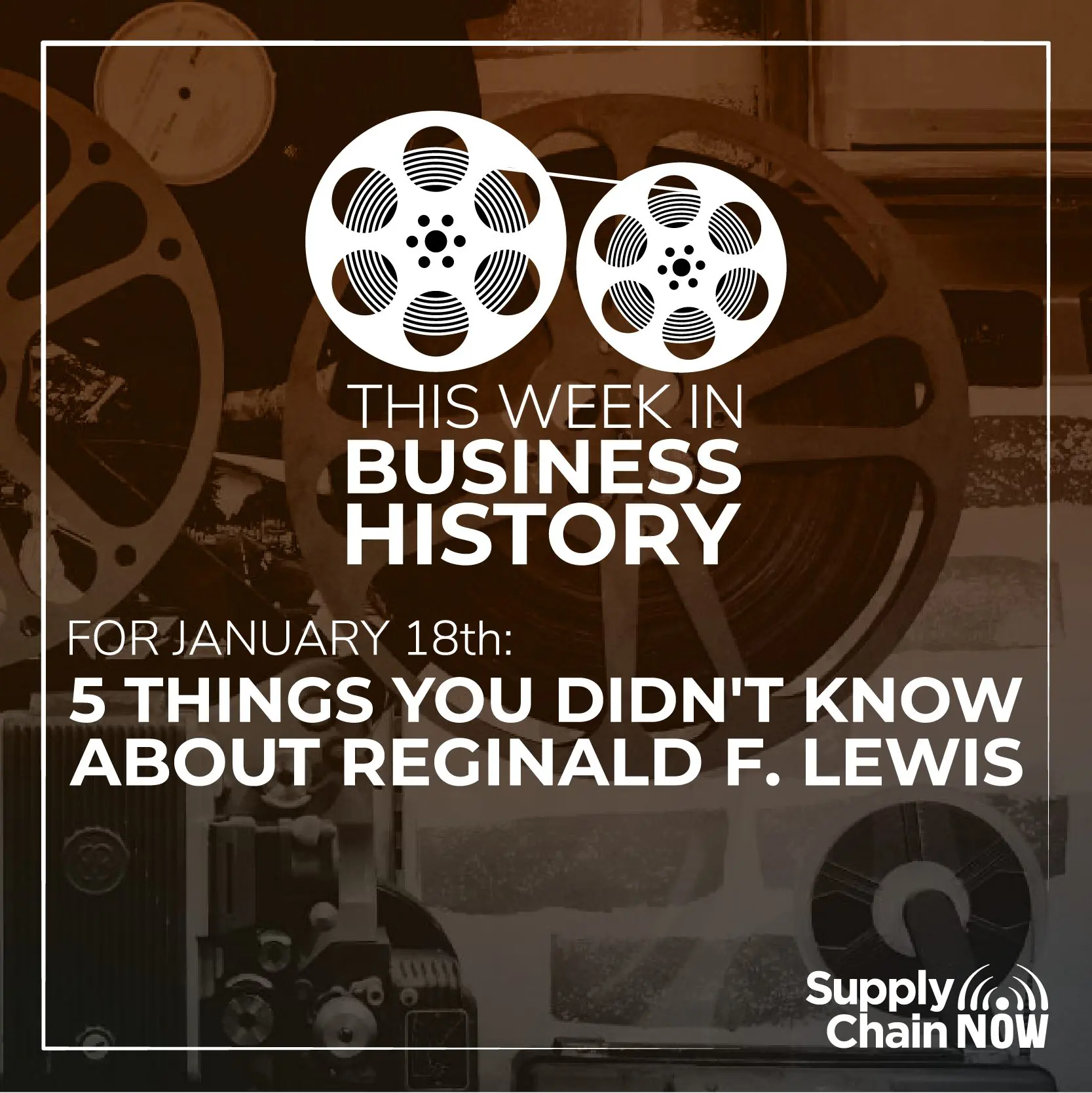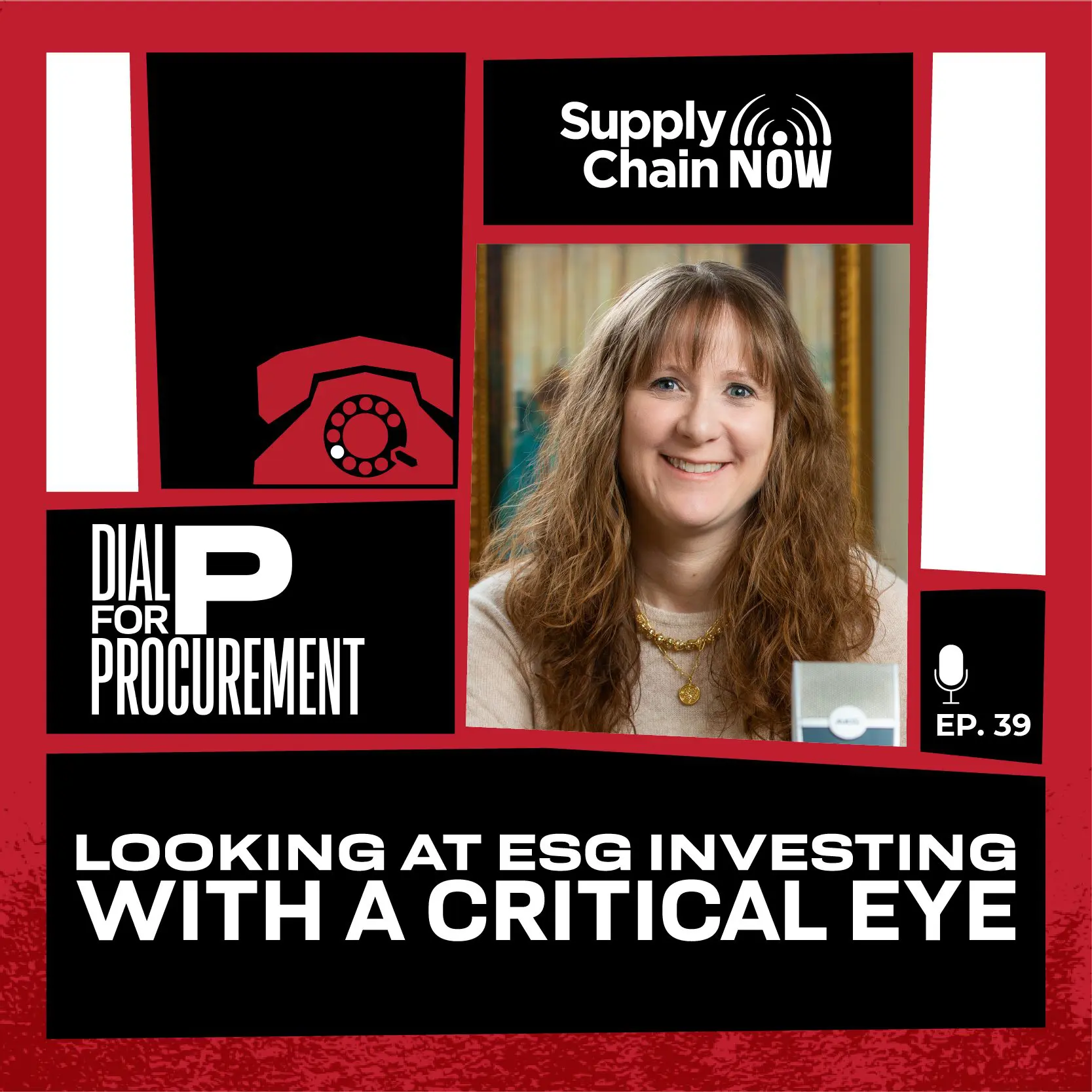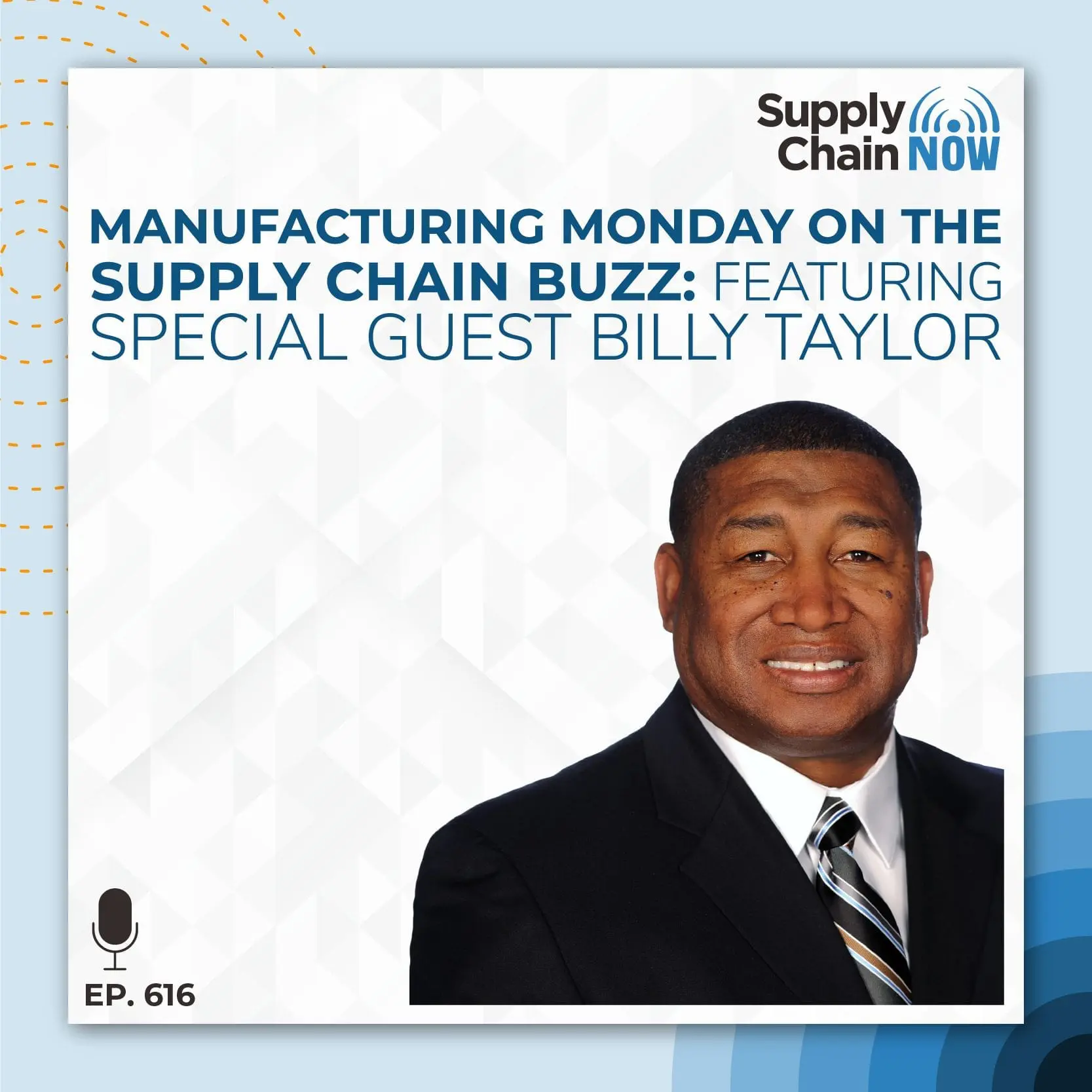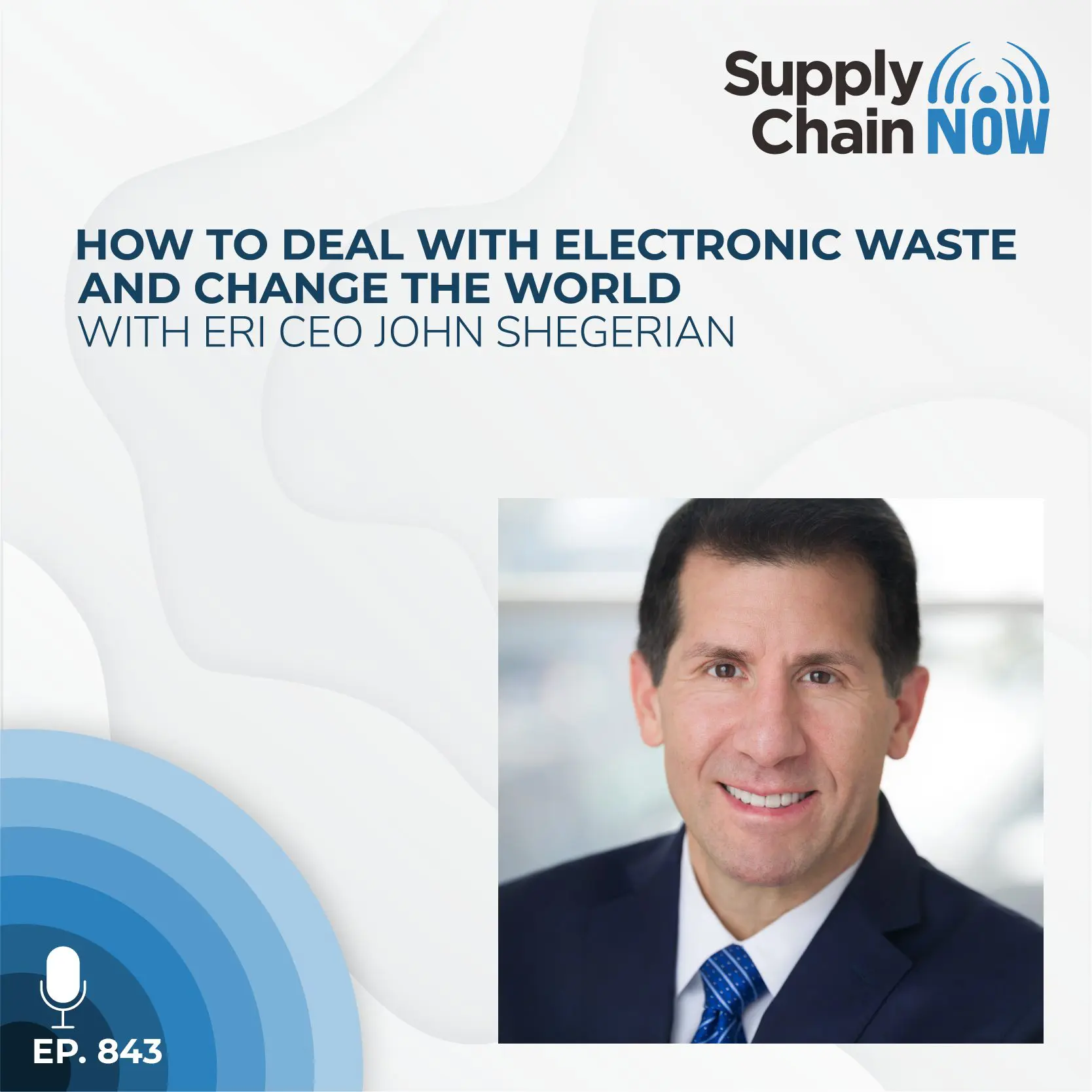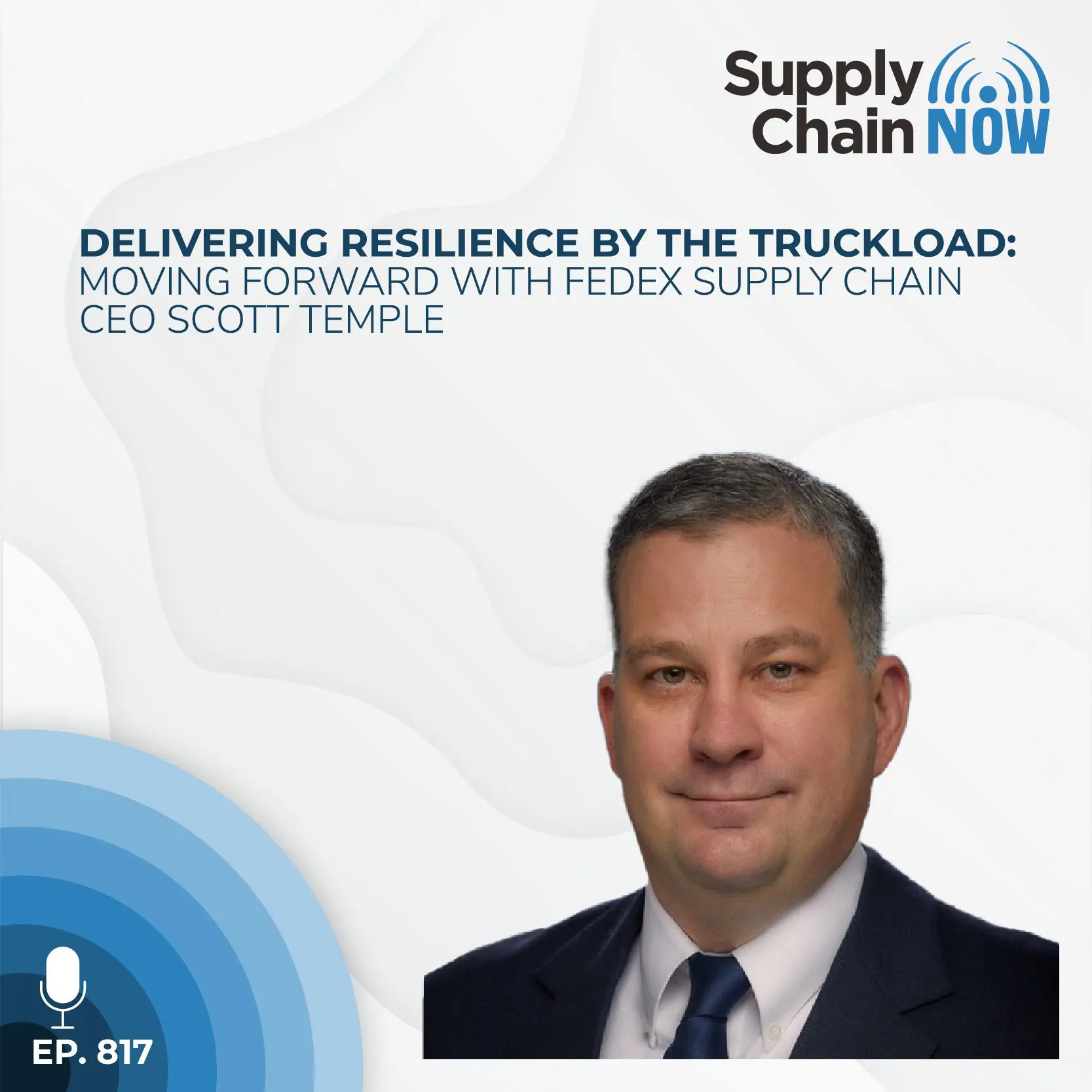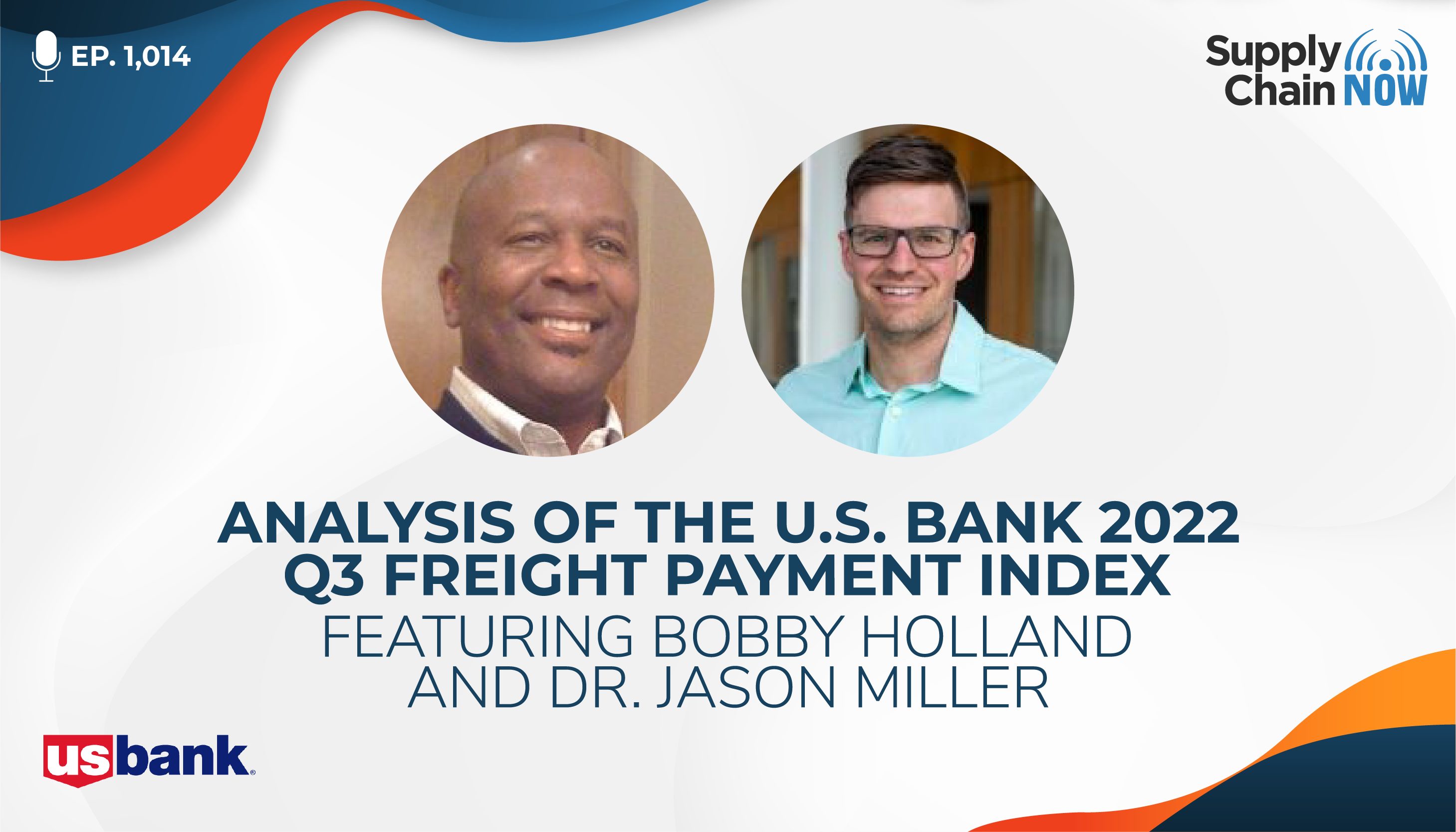
If we're starting to see the market correct itself much more rapidly than it did in 2019, that is the most interesting discussion as we start moving into 2023 and we start thinking about entering bed season and what shippers will actually experience.
-Dr. Jason Miller with Michigan State University
Episode Summary
In 2021, U.S. Bank processed $37 billion in freight paymments for some of the world’s largest corporations and government agencies. Those payments and the data that accompanies them are analyzed quarterly by Bobby Holland, U.S. Bank vice president and director of Freight Data Solutions and his team. The FPI report includes quarter over quarter, year over year, and full year data and analysis.
In Q3 there was a slight dip in national shipments and spend. Although the index captured natural fluctuations over the course of the quarter, spend continues to be high and capacity remains tight.
In this interview, Bobby is joined by Dr. Jason Miller with Michigan State University to share the results of the on the Q3 2022 report with Supply Chain Now Co-hosts Greg White and Scott Luton, interpreting what they may mean for the economy and the shipping industry in the short and longer term.
• Why the Northeast saw the largest spend reduction of the five regions tracked by the index
• The impact that manufacturing’s slowing rate of growth is having on the freight market
• The extent to which the threat of a potential rail strike impacted the Q3 numbers
Episode Transcript
Intro/Outro (00:03):
Welcome to Supply Chain Now, the voice of global supply chain. Supply Chain Now focuses on the best in the business for our worldwide audience, the people, the technologies, the best practices, and today’s critical issues, the challenges, and opportunities. Stay tuned to hear from those making global business happen right here on Supply Chain Now.
Scott Luton (00:32):
Hey, hey, good afternoon, good evening, and good morning wherever you are across the world. Scott Luton and Greg White here with you on Supply Chain Now. Welcome to today’s livestream. Greg, how you doing?
Greg White (00:42):
I’m doing quite well. You know, it could be today’s or even tomorrow’s livestream depending on where a person is at this very moment, right?
Scott Luton (00:49):
You are correct. And you know what?
Greg White (00:52):
[Inaudible] anyway.
Scott Luton (00:53):
I always go morning, afternoon, and evening, and I’ve jumbled that up and I was like, I was in Bizarro World. So, thank you for clarifying. It can be any in the future, in the past, you name it. But –
Greg White (01:04):
Right.
Scott Luton (01:04):
You’re in the right spot for all things freight and supply chain today ‘cause, Greg, we’ve got a great show teed up. We are going to be sharing key insights from one of the leading transportation industry resources out there, the U.S. Bank Freight Payment Index for Quarter 3 2022. Greg, as always, we’re going to be gaining key takeaways from the index from two business leaders with extensive experience in the transportation markets. And before we introduce our guests, Greg, we’ve really enjoyed our collaboration with U.S. Bank going back several years now. And, of course, we all know they’re one of the leading financial institutions involved empowering the transportation industry for, which is the backbone of global supply chain. Greg, your thoughts?
Greg White (01:44):
Yeah, no doubt. And mind how the world has changed since the last quarter, which we’re about to find out. And I had the opportunity, nearly had the opportunity for an additional collaboration with U.S. Bank because they almost moved the Chiefs and the Buccaneers game to U.S. Bank Stadium, would’ve been my first chance to get to go see that. So, I’m sorry, I didn’t get there, but anyway –
Scott Luton (02:03):
Next time.
Greg White (02:03):
It’s a good thing because that means Tampa was spared from Ian. So, but, hey, look, the thing that makes this such a big deal is that the data from $37 billion, B as in Bezos, to quote The Great Scott Luton. $37 billion worth of freight transactions goes into this. And then, incredible analysis to normalize it and analyze it and do all the magic that Bobby will tell you about later. But it’s an incredible amount of data and a very intensive type of analysis to provide this to us, to let us know officially what it lets us know is what has happened just recently, right, in the last quarter and how that compares to previous quarters and previous years. But it also allows people to make some extrapolations of what could happen in the future. Now, that’s not U.S. Bank’s job.
Scott Luton (02:55):
No, not at all.
Greg White (02:56):
It’s our job. But – I mean, whatever you can learn from the past, right, to work into the future is helpful and it’s also your choice. But past performance is no indication of future value.
Scott Luton (03:08):
That’s right. So, a lot of data driven insights.
Greg White (03:09):
Yeah.
Scott Luton (03:11):
And a lot of practical boots on ground insights, so stay tuned as we walk through that with a great one-two punch feature guest panel here today. But before we get there, Greg, let’s say hello to a few folks here. Josh Goody is back with us. Second time this week.
Greg White (03:26):
“Still smokey and still cold in Seattle.” So, that was what? Tuesday or Wednesday.
Scott Luton (03:32):
I think. I think.
Greg White (03:32):
Yeah.
Scott Luton (03:33):
So, Josh, great –
Greg White (03:34):
Let’s let us know why smokey. I’m afraid – although I’m kind of afraid to know. But, yeah.
Scott Luton (03:38):
But more importantly, Josh, let us know your thoughts on the freight markets from what you’re seeing up there in the Pacific Northwest. Great to see you here though. Glorimar is back with us. “Good morning,” she says, “From a pretty warm Los Angeles.” Glorimar, great to have you, really have enjoyed your perspective there numerous times in the last few weeks, so keep the good stuff coming. Katherine and Amanda and Chantel and Clay, the whole name, the whole production team making things happen behind the scenes. So, thank you for what you do, Katherine. She says, “Good morning, everybody.” Now she’s up in the mountains, Greg, and I bet it’s gorgeous. I bet it’s frigid. I bet it’s gorgeous up there in the Georgia Mountains, huh?
Greg White (04:13):
Yeah. It’s peak leaf changing right about now.
Scott Luton (04:17):
It is.
Greg White (04:17):
Supposed to be happening in the next couple weeks, so.
Scott Luton (04:20):
Love that. And, of course, Jonathan’s back with us. Jonathan, great to see ya – the Pride of Louisiana. And good morning to you. Looking forward to hearing your thoughts on what we’re chatting about today. And finally, Monika. And Monika maybe speaking to Seattle, Josh talking about Smokey. So, we hate to hear that. Prayers and best wishes for sure. But, Monika, thanks for being here, via LinkedIn, looking forward to your perspectives. Okay. Greg, with no further ado, are you ready to bring on our two rock and roll guests here today?
Greg White (04:50):
I am. Let’s do it.
Scott Luton (04:51):
I am as well.
Greg White (04:52):
[Inaudible]
Scott Luton (04:52):
With no further ado, want to welcome in once again, repeat guest, Bobby Holland, Director, Freight Data Solutions at U.S. Bank, and Dr. Jason Miller, a professor at Michigan State University which is, as we all know, one of the world’s leading educational institutions for supply chain management. Hey, hey, Bobby, good morning. How you doing?
Bobby Holland (05:13):
Doing well. How are you all?
Scott Luton (05:14):
So good to see ya. And, Jason, how are you doing, sir?
Jason Miller (05:18):
Doing well. Glad to be on.
Scott Luton (05:20):
We are glad to have you. We’ve enjoyed the pre-show conversations quite a bit, haven’t we, Greg?
Greg White (05:25):
We have indeed as always. And, we enjoyed Bobby’s new backdrop.
Scott Luton (05:29):
That’s right. Bobby is looking great now. Bobby, we’ve done –
Bobby Holland (05:33):
Old cases of pipe.
Scott Luton (05:37):
Well, Bobby, we’ve done this a time or two and looking forward to diving into perspectives here today. And, of course, Jason is a new guest here for us. But Jason does – folks like to put their finger on Jason’s pulse. He learned what he knows and what his data shows about global supply chain, so we got a great conversation teed up. I want to start though, I want to start, with just refreshing, Bobby, you’ve been with us going back three years, probably. Let’s – for folks that may be knew to who you are, talk about your professional history a little bit.
Bobby Holland (06:06):
Professional history. Well, I’ve been with the bank for over six years. My main background, you know, for most of my career has been in software engineering, software architecture, and software design. So, it kind of lends itself a bit to the technical products that we develop. Our, my team at U.S. Bank is primarily responsible for developing data-related products, basically adding value to our customers from the data, so.
Scott Luton (06:30):
Lots and lots of data by the container ship load. So, I appreciate what you bring here, time and time again, Bobby. Look forward to getting an update on third quarter. And, Jason, great to see ya. For the handful of folks that may not know Michigan State and what you do there, tell us about it.
Jason Miller (06:48):
Yeah. So, we are one of the number one ranks supply chain programs in the country, graduate and undergraduate. I teach our MBAs also and our master’s and our doctoral students. So, I’m the interim chairperson as well right now for the department. So, in addition to having the standard faculty responsibilities, I’m also the unit head.
Scott Luton (07:08):
That’s right. And time and time again, whether it’s Gartner or all sorts of other third parties, Michigan State University has been turning out a ton of talent. Appreciate what y’all do for industry. Okay. Gregory, where are we going next with this esteemed panel?
Greg White (07:22):
Well, I think we ought to talk to Bobby a little bit, which we never do. So, Bobby, I mean, aside from $37 billion worth of transactions, give us a little bit of an idea of what makes this analysis so powerful and maybe a little refresher for folks on how the construct works.
Bobby Holland (07:40):
As you stated, we do generate a large amount of data, copious amounts of data from transaction processing in our freight payment system. One of the things that lends itself to this effort is the regional breakdown. Again, we know we’re just another data point in our customer’s, you know, ability to make decisions on their business, so we want to add that to our point of view. And so, we do that by adding the regional element. We have a chain-based index, which simply means that the previous quarter is the starting point. So, we compare quarter to quarter, but we also have a year over year comparison. In addition, you know, we measure a same store sales-type approach between quarters so that we factor out seasonality, we factor out attrition and addition so that we have a very balanced view. We also normalize the months and there’s some, you know, some other mathematical things we do to calculate in the index. But, again, we believe that it represents another viewpoint in addition to the other indices that are out there.
Greg White (08:35):
Yeah, that’s helpful. I think that, you know, the cleansing of the data a bit to make sure there’s no anomalies in it, like someone added a store and that makes it look like the freight has gone up, I think that’s really important. Not sure everybody understands a lot of that detail work that goes into that. So, Jason, tell me, I mean, you and your colleagues or other professionals or academics in the supply chain world, how do you typically use the Freight Payment Index?
Jason Miller (09:01):
Yeah. So, for me it’s a key input of just getting a sense for where is the freight market moving. And as Bobby described it, one thing that I’ve been drawn to is the fact, you know, mentioning controlling for attrition, controlling freight entry. That is something very challenging. You typically only see that in government statistics where these approaches are used. So, I use U.S. Bank’s data as not only an input to class, but also I produce my own index from some different data. And so, I use that as a benchmark ‘cause as Bobby said, we’re all trying to get a sense of what the world is and we’re using different pieces of data to do that.
Scott Luton (09:38):
Yeah. It is good. I love the data side and the practical side, what makes these conversations I think so effective and we get a lot of feedback along those lines, Greg. So, with no further ado, Bobby, I want to dive right in. I’m going to pull up this graphic here, which comes to us from the Freight Payment Index. And, folks, you can download this, you’ll see the link in the show notes and we’ll also share that with you in a minute. But, Bobby, at a high level, national point of view, tell us what third quarter in the data there shows.
Bobby Holland (10:05):
Well, as you can see, we had a slight dip on both shipments and spend at the national level, 2.6, 2.4%. But one thing to note, and we always like to stress this, if you look at the graphic, you can see that even though we may have dips and rises, as you can see, we’re still pretty high on our spend, which as we’ve, you know, noted amongst several previous quarters, it still reflects capacity constraints. Capacity may ease. It may tighten up, but it’s still remaining very tight. And that’s why you see visually here spending continuing to outpace shipment volumes. They may both dip a little bit in sync, but right now again, you know, spend far out paces, shipment volumes.
Scott Luton (10:55):
Yep. So, before we go into it region by region, one of my favorite parts of this program, Jason, big picture, just overall view, what are a couple highlights that you saw in the data?
Jason Miller (11:05):
So to me, one of the biggest things I see is the fact of spend overall that shippers are paying is still so elevated and that is very consistent. For example, with what the bureau labor statistics is showing for their producer price index for trucking, pulling that up year over year, general freight, truckload, contract heavy pricing, still up 16% all in. That’s very consistent with what Bobby’s showing right here. And that’s on a price per transaction basis. So to me, one of those key things is, if you’re a shipper and you’re expecting, you know, these massive decreases in spend moving into 23, none of the data is really pointing towards that happening. It’s pointing to pricing normalizing, but it’s going to normalize to a base that is substantially higher than, let’s say, 2018 or 2019.
Scott Luton (11:54):
Right. Okay. Good, good, good. Greg, I’m going to come to you really quick in just a moment. Let’s see here. Dr. Rhonda, great to see you here today from Arizona. Looking forward to your perspective. And, Musawer, via LinkedIn, great to see you here today. Looking forward to your insights. And, folks, by the way, we’ve already dropped the link so you can download if you want to, you know, follow along as we work our way through this conversation. Feel free to do that as well. Okay. Greg, really quick before we move into region by region, just like Bobby and Jason shared a couple of bigger picture highlights, your thoughts.
Greg White (12:22):
Yeah, I think year over year there’s hope here, right? Because shipments are way down, but spend is way up. But quarter for quarter we’re starting to see it leveled off so that the shipments are coming down at the same rate that the spend is. And like Jason said, it’s still not 2019 levels, which were arguably elevated as well. And so, we’ve got a long way to go, but we have seen overall container prices come down and likewise, in some cases, at least ground prices. Now, we’ve got some other factors working like the Mississippi River is drying up and all of that freight may have to be used to truck to be shifted to trucks if that’s even possible. So that could have some impact on tightening.
Scott Luton (13:03):
Well said, well said. I’ll tell you, intriguing, the hits keep on coming. Challenges. Okay. So with that as a backdrop, Bobby, Jason, Greg, appreciate y’all’s thoughts there, kind of big picture. Bobby, let’s dive into the Northeast to start with. So, what’d you see? What’d the data tell you in the Northeast?
Bobby Holland (13:21):
Well, the Northeast, you can see that the Northeast was down 10.4%.
Scott Luton (13:25):
Right. Right.
Bobby Holland (13:26):
Yeah. And it was the largest of the five regions in its drop, 7.1% year over year, decrease. Spend was down 1.4%, but year over year was still up 11.9%. We see a lot of interesting things happening in the Northeast simply because of the population density. It tends to magnify some aspects of the market. For example, in this region, retail is down and so you’re going to see that impacting the type of goods versus services that are being shipped. Also, Housing Starts are stale up here as well, which impacts freight.
Scott Luton (14:03):
Yep. And, of course, I think I saw in the report with those big population centers up the Northeast, of course, inflation and those retail sales are going to play a bigger picture. So, good stuff there. Bobby, thank you for sharing. Jason, when you saw, when you looked at the Northeast, what’d you see?
Jason Miller (14:17):
You know what, really just reinforcing what Bobby mentioned is, you’ve got a market that is very consumer-good centric. We are seeing retail sales flat, if not down a little bit year over year by the Census Bureau. Housing activity in the Northeast is certainly slowed from this time last year. You really don’t have a market that’s sort of the very manufacturing intensive market like you’d have in the Midwest or the Southeast. And so, you don’t have the possibility here of manufacturing’s rebound, making up some of those volumes that are being lost otherwise.
Scott Luton (14:50):
Thank you for that, Jason. All right. So, Greg, are you going to be the contrarian today? Jason and Bobby, looks like they agree on what they’re seeing. Greg, what say you?
Greg White (14:58):
Yeah. I mean, I think we’ve established the reasons for it. I think the scale of it is what stands out to me is the number of shipments that have come down year over year versus the amount of spend year over year, still tells us that rates are very high. And this is where we start to see the regions, kind of separate, because we’re seeing shipments down dramatically year over year, but pricing or spend up dramatically year over year as well. So, there’s some sort of constraint going on there that’s causing that to happen.
Scott Luton (15:32):
Yep. Really quick before we move to the Southeast. You know, inflation was a big part of that Northeastern market. Dr. Rhonda says, “Listening in from the GCU Student Success Center.” You’ll have to let us know which school that is, Dr. Rhonda. Students here –
Greg White (15:44):
Grand Canyon University.
Scott Luton (15:45):
Oh, thank you. Grand Canyon University. Okay. “Students here concerned about escalating costs, so many variables in play. Thank you for discussing these via your professional analysis Supply Chain Now team.” Thank you. And big thanks to Bobby and Jason for helping us do that here today. Thanks.
Greg White (16:00):
Yeah. For the real profession.
Scott Luton (16:02):
Right. So, moving from the Northeast to the Southeast and, you know, Bobby already touched on this, but Housing Starts. So, accord – before I get your take on Southeast, according to the Census Bureau, U.S. Single Family Home Starts in September failed to the lowest level in more than two years. And that was a factor in the Southeast. Tell us more, Bobby.
Bobby Holland (16:21):
Well, as you said, Housing Starts, higher mortgage rates are also slowing the housing market in the Southeast. We saw that reflected. It contracted 1.1%, which again is slight, but compared with the year earlier, shipments were down 10.5%. So, a pretty good size drop considering, like I said, everything is kind of flying high. From a spin perspective, it only dropped a 10th of a percentage point, but it was also up almost 11% roughly from the previous year. So, again, you still see the spin going kind of high and it’ll be interesting to keep an eye on the southeast region as they migrate through managing around Hurricane Ian damage ‘cause there’s a cycle embedded in there where you, you know, you see things flatten out and then as they start to rebuild, things jump up. So, we’ll be watching for that.
Scott Luton (17:08):
Yes, a heartbreaking to see some of the scenes still down there in Florida, across Florida. Okay. Southeast, Jason, your thoughts?
Jason Miller (17:17):
So again, echoing that, to add to it, I think one thing we may be seeing as well on the shipment side is with the elevated, you know, fuel prices, we’ve seen a lot of partial truckload shipments that were moving last year getting consolidated into full shipments. And especially as you talk to Southeast, you have a lot of manufacturing where that becomes more of a potential. So, in a raw shipment count basis, that’s is likely playing a little bit of a role as well. And again, TECO, you know, their recovery efforts, it will take time. Right now, the industrial production in the U.S. of construction supplies is actually at the highest level we have seen since the Great Recession. Probably, it will be a little bit more of that, but fortunately the damage from Ian, Ian is not anywhere near like Hurricane Katrina levels. And so, we also have to keep that in mind as historic, you know, for historical perspective. We’re probably looking at more of a Harvey level event and not a Katrina level event.
Scott Luton (18:16):
Thank you for that, Jason. All right. So, Greg, the Southeast, your thoughts?
Greg White (18:22):
Yeah, well, housing, and this is true throughout the country, but housing is in terms of volume and in both build and sales, pretty dramatically because of the impact of major buyers, private equity groups and public companies buying entire neighborhoods to make them into rental neighborhoods. And, they have all put the brakes on that, or many have put the brakes on that. So, we’ll start to see fewer of those homes being completed or started and, you know, in relatively large numbers. And some neighborhoods have been completely shuttered, I mean, just pulled off the market for development. So, some things, I think we had built into the forecast for housing will probably not come to fruition in the next few months.
Scott Luton (19:09):
I appreciate you sharing that. Before we move to the Midwest, I want to just remind folks, y’all can download this link. We’ve dropped link in the chat. You can also go to freight.usbank.com and, some of the best news you’ll hear today is it’s free. It’s great analysis at no charge. Just got to sign up. Okay. So, we are moving our way through the regions here. We’ve tackled the Northeast. We’ve tackled the Southeast. And now we’re going to dive right into the Midwest. So, Bobby, what did you see in the Midwest?
Bobby Holland (19:39):
Midwest was down 4% where the previous quarter year over year was down 3.5% in shipments. And then, spending was down 5.3% and year over year was actually up 6.5%. Again, we see some of the similar factors in the Midwest. You know, new home construction was off by more than 15% from this timeframe last year. Manufacturing activity, however, is still growing, but it’s pace of growth is slowing. I mean, that has an impact on shipping of freight in that market.
Scott Luton (20:09):
Well said Bobby. Jason, your thoughts about the Midwest.
Jason Miller (20:13):
Yeah. So again, we’ve got a market that’s very manufacturing intensive. While we’ve seen auto come back a little bit, we were actually seeing some of the steel mills strategically idle some capacity and moving it forward. So, U.S. Steel and Nucor, for example, were talking likely Q3 volumes below where they were last year. That’s going to take away some of that. Again, you’ve got major distribution-centric markets for e-commerce activity and e-commerce activities down a little bit year over year. So, I think together those pieces make sense.
Scott Luton (20:46):
Greg, the Midwest, stopping grounds.
Greg White (20:48):
Yeah, Southeast and the Midwest share automotive and steel to a large extent. And we just heard from the not just supply chain expert, but the Midwest supply chain expert being right in the heart of Michigan. But, yeah, I think that, you know, with the chip shortage, even the cars that are manufactured cannot be shipped or at least not shipped in the rate they were. But fortunately, we’re starting to see some of that break. There are cars on car lots if you haven’t been out there lately. Go buy your local car lot and you might even see some vehicles on it and they’re not all used.
Scott Luton (21:19):
Speaking of that, Greg, quickly, I was down in Gartner at the IT symposium over the weekend and I completely stole your line or someone else’s line about how many parts does it take to build a truck? All of them. So, Greg, your ears may have been burning, right? But speaking of the automotive industry, some folks may not know, it makes up about 6.7% of the overall manufacturing industry. And despite all the attention that semiconductor supply has gotten, it’s still hindering in many ways. Earlier this month, Stellantis shut down a production line because of lack of chip supplies. So, hey, we’re going to bridge a gap soon enough. We got to. It may take a few years, but there’s so many new sites being broken ground. It just takes quite some time to stand these things up. Okay, so moving from the Midwest, Bobby, let’s dive into the Southwest, which perhaps had the more, the most robust quarter when it comes to volume and spending up, both quarter over quarter and year over year in the southwest. Tell us more, Bobby.
Bobby Holland (22:19):
So, we had third quarter, it was up 5.8% in shipments. Year over year, that was up almost 7%. With spend, it was up almost 2% and year over year though it was up almost 25%. Southwest has a lot of influence from crude oil production. And so, we know with the world market for fuel of various types, oil, that, you know, there’s going to be a lot of impact to this region and we can see, you know, we can see that reflected in the shipment and spend. Also, I might add border traffic Mexico.
Scott Luton (22:55):
Jason, when you look at the southwest, what’d you see?
Jason Miller (22:59):
You know, Bobby mentioned it, hydraulic fracturing activity. Fed Reserve Board data has that up 55% year over year. Most of the new fracking when you look at where the oil’s getting pumped out of it’s West Texas, but also now, New Mexico has actually overtaken South Dakota. And so, certainly, that’s driving a lot of demand. Texas does have probably the strongest housing market right now in the US in comparison to the rest of the country. And again, cross border traffic, as auto has gotten a little bit better, you do have better cross border flows taking place with more outputs. So, I’d say those factors combined together.
Scott Luton (23:38):
Yep. Greg, Southwest?
Greg White (23:39):
Yeah, frack it. That’s what’s really, really causing it. Energy is such – sorry, I can’t even – never mind. I know, I mean it is. It’s a lot of energy. And of course, the cross-border trade with Mexico, which, you know, we’ve been aiming for and we hoped would happen prior to the pandemic, but it’s just been a very, very slow crawl because of the pandemic to get everything, everything going with the new agreement with USMCA, right? With Canada and Mexico. But we’re starting to see some flows there and when oil prices are as high as they are, we’re going to see them fracking, so.
Scott Luton (24:20):
Yep. Well, I appreciate. It seems a lot, lots of consensus there and lots of activity in the southwest. We’ll see if that holds up through the fourth quarter. I’m not asking for any predictions, just putting that out there. Bobby, let’s talk about one of our favorite regions, the region keeps on giving, the Wild Wild West. Tell us what you’re seeing out there.
Bobby Holland (24:37):
West was down just four tenths of a percent over last quarter. Shipments were flatter in the quarter. A lot of stuff going on with the ports and trying to, and that’s influencing in a lot of different ways, but the port congestion is dropping, you know, due to, no doubt, due to moving to other ports, but also getting better at moving the freight into the port and off of the ships. But then, they also had influences from work slowdowns, which is kind of holding the freight on there. So, the dwell times were actually up but they’re still, you know, moving it out. And then, like I said, you had slowed down from the strike, and then the railway strike threatening, which kind of shifted some things around. So, there’s a lot of stuff going on in there. Spend was down eight tenths of a percent. So, very slight drop for both of those showing that it’s still very tight in the West market. Housing Starts were down very slightly. So, again, a lot of different factors kind of co-mingling to kind of just produce a very slight drop in the West.
Scott Luton (25:46):
It’s like the Baskin Robbins region out there. Right? All kinds of different flavors and ingredients going into the market. Jason, what’d you see in the west?
Jason Miller (25:55):
Yeah. So again, I mean you’ve got, especially, you know, that West Coast region, very consumer centric again so that piece down a little bit. You know, we’ve got imports through the West Coast are slowing relative to where they were last year, again, due to the diversions. I’d say there probably was some modal shift over in September with the concern of the rail strike. So, we’ll have to be, you know, watching the November situation very closely. And then, activities, again sort of feeling just a little flatter. That region isn’t as sensitive to fracking as the, you know, New Mexico and Texas regions. And so, the energy play doesn’t have quite the role that it would have, let’s say, 10 years ago.
Scott Luton (26:38):
Yep. Thank you, Jason. Greg, the West?
Greg White (26:41):
I think one of the, you know, one of the biggest impacts continues to be the diversion that both Bobby and Jason have talked about. I mean, there’s no way to argue that what is holding up the volumes in the Southwest and the Southeast are re-routing of ships into those ports and then relocating them across the country or into the inland ports. And I think even though those ports now have their own problems, they’re much more predictable. I would say less volatile than the West Coast ports and transport from the West Coast ports has been. I mean, we’re still seeing lingering effects of the shutdown of rail from the West Coast to Chicago, which was Q2, right, Bobby?
Scott Luton (27:24):
I think so.
Greg White (27:24):
I mean, I think so many people have re-routed traffic because we still have because of that and that really hasn’t recovered.
Scott Luton (27:32):
Yep. And we got inventory coming out of our ears, of course, so everyone packed in that earlier in the year, earlier than typical peak. In fact, Bobby, Jason and Greg, the National Retail Federation’s Global Port Tracker report is projecting the imports coming into major USC ports, not just west but major USC ports are going to be down 4% in the second half of the year. Okay. So, we’ve covered the regions, Northeast, Southeast, Midwest, Southwest and West. Greg, where do we want to go next with Bobby and Jason here?
Greg White (27:59):
I think what I’d like to know is just what they’re seeing, what’s the biggest takeaway? I mean, Bobby, I know you can’t give us a forward-looking statement, right? But what do you see and do you see anything dramatically different from the reports we’ve given in the first two quarters of this year?
Bobby Holland (28:14):
Nothing dramatically different. I think one of the bigger components is the slight drop in fuel prices as well as slightly lower demand, the shift from the spot market into contract freight. Those things kind of have influenced spend to an extent. Right now, we’re just going to be watching to see how all of these things shake out in the fourth quarter with the season, the holiday season coming up and, you know, we’ll fuel – which direction fuel price is expected to go. Some expect them to go a lot higher again, some expect them to stay, you know, moderate but still high. Again, there’s just a lot of different variables that we’ll be watching to see how it all shakes out in the fourth quarter.
Greg White (28:57):
Jason, what jumps out at you? Is there anything worth shattering or unexpected or even expected but noteworthy?
Jason Miller (29:05):
So, what I would say the thing I’m probably most looking at is what keeps happening with trucking employment from a standpoint of – we had sort of a peak in July and August but September there was a very sharp pullback in both seasonally adjusted and especially not seasonally adjusted employment. And that is very consistent with the industry as it always does adding too much capacity. But that, if we’re starting to see a market on a capacity site correct itself much more rapidly than it did in 2019, that to me is I think from the spend standpoint, the interesting discussion as we start moving it, especially into 23, and we start thinking about entering bed season and what shippers will actually experience.
Greg White (29:49):
So, can we talk a little bit about 23? Bobby, not you.
Bobby Holland (29:54):
I will listen carefully.
Greg White (29:55):
Yeah, please listen carefully. Jason, I know you have eyes on the future and you, of course, have not just a supply chain view, but a macro and microeconomic view. So, I’d love to understand what you might be seeing as we look throughout the year, end of 23 or maybe even farther if you have some eyes on that.
Jason Miller (30:18):
I wish I had eyes further out on that. So, I’d say there’s a couple big pieces that I’m looking at. So, we mentioned housing. When you look at housing, it’s basically went from being very heated down to where it was in 2018 and 2019. When we look at our Starts for September, they’re right between 2018, 2019, on single family. Do we see that continuing into 23 or do we start dipping down even lower? That’s something I’ll be watching very, very closely on that side. On the manufacturing side, ‘cause manufacturing still generates the majority of trucking activity in this country. It’s about 58% according to Census Bureau. Our manufacturing output is actually up over 4% year over year according to the Federal Reserve Board. Where does that move in 23? Because we’ve been moving sideways right now. We’ve got massive infrastructure investments planned. Where does the oil and gas sector move? Do consumers still have money to continue to buy automobiles? We’ve got a multimillion-dollar shortfall from the chip issues. So, how does that play out? So, I’m looking at that.
Jason Miller (31:24):
Retail-wise, you know, we’ve been moving inflation adjusted basically flat to down since March of 2021 when we had stimulus. It seems that we’re going back to the long term trend line. Just do we start to dip below that trend line because that would be an indicative of that. And then, I’d say, you know, I’m looking at the inventory situation. We’ve talked so much about retail in parts of wholesaling, which a lot of, quote-unquote, manufacturers like Nike are actually wholesalers per Census Bureau Data. We’ve got inflated inventories there. Do we see things correct themselves? And then, I’d guess sort of lastly, where are credit card delinquency rates and things like that? The Federal Reserve Board has delinquency rates still below pre-COVID levels as of the second quarter of this year. And so, I think we’re still trying to figure out the record stimulus we had in 20 and 21, how does that cushion the consumer against the worst inflation since the early 1980s. And that’s where I think there’s just a lot of uncertainty and you get these very different predictions.
Scott Luton (32:32):
Greg?
Greg White (32:31):
Well, thank you. First of all, thank you, Jason. Sorry, you made me think about a lot of things. One is that I am not an economist, but I’m right as often as many of them. It’s kind of like being a weather caster or a sportscaster, right? Thankless, thankless job. You know, a lot of the predictions I’m seeing are inflation holding in the 5-6, 4-5 to 6% range for 2023. Though they do anticipate it tapering off and the thing that’s going to make that the growth in inflation taper off or the stability in inflation, high level of inflation taper off is, two, now virtually guaranteed pikes by the Fed of three quarters of a point in November and a half point in December. It could be more and definitely will be towards the higher end of that because the Fed has lost credibility and they’re trying to gain it back that they can gain control of the economy.
Greg White (33:28):
My concern there, by the way, is that this is not necessarily a monetary policy thing. I think to everyone’s recognition, of course, $4 trillion impacted that, but it’s not all of the impact because consumer savings are at one of their highest rates. I think the highest rate in a couple of decades, right, Jason? So, they’re not – so people are not spending all that money. What’s happening is, we continue to see much as we’ve seen with trucking. We see unit volumes going down and yet spend going up because the prices are going up at such an incredible rate. And there is a lot of confusion. Even in just all of that that I said, there is counter analyses to all of those statements. So, that’s the thing that makes this really tough is that it, it will continue to be a volatile environment and we will continue to, particularly in shipping and inventory management will continue to be on the back foot responding to consumer demand or changes, particularly changes in consumer demand over time. I mean, we miss the boat on tennis shoes and patio furniture this year in a big, big way. So, you know, I think there will be more of those kinds of shifts and surprises to come, especially as people start to feel recession or feel economic slowdown. They haven’t really yet. And that’s what’s been confusing for economists in just declaring whether this is a recession or not.
Scott Luton (34:51):
Jason, any final thoughts there? I’ll give you a chance to respond to anything Greg shared.
Jason Miller (34:55):
No, I agree. I mean, there’s just so much uncertainty. I mean, the things I keep looking for on the consumer side, again, credit card delinquency data. The Fed Reserve Board publishes that mortgage delinquency rates. Credit card delinquency rates are about a percentage point below where they were in 2019. Mortgage delinquency rates are actually at nearly the lowest level they’ve been since 2005. And so, we’re not seeing the upward trends that would be indicative of a steep recession. The other thing I would just always caution everyone about is the Great Recession was fundamentally different from every recession the United States had since the Great Depression. There’s copious economics research on that that I have had the fun of reading for some of my research.
Bobby Holland (35:41):
You lucky devil.
Jason Miller (35:43):
Yeah. And that’s one thing for people to keep in mind. We’ve had, you know, these interest rate-driven recessions before they tend to be fairly quick. They can be sharp on some sectors, but we are having very different dynamics now versus, let’s say, 2000 – you know, 2001 recession where we also were in the midst of the offshoring boot. Nobody right now is talking about, hey, let’s close our plants in the U.S. and shift production to change.
Scott Luton (36:10):
Right.
Jason Miller (36:11):
And so, that’s where things are very different and one reason that the last sort of two recessions where I think felt so much in the freight market was when those recessions hit, we saw tremendous closure of manufacturing establishments because of a lot of offshoring. We’re not looking that at that in this instance right now.
Scott Luton (36:32):
That’s a great point. Excellent point, Jason. I really appreciate that. Before we got – we got a couple extra minutes. Bobby, we’re about to make sure folks know how to connect with you and where to get the Freight Payment Index and stuff like that. But, Greg, I’ve got a quick idea and, Jason, if you’ll indulge me here, as we laid out on the front end, Michigan state’s known foreign wide is one of the leading supply chain management institutions by anyone’s measure. Little challenge. I bet you got one of the best jobs in the world. You got the chance to engage all these bright minds that’s going to come in. If they’re not already currently change industry, they’re about to. And that’s a great thing. If any your first two students that wanted to raise their hand and write an analysis on the third quarter 2022 Freight Payment Index, we’re going to buy them a nice dinner. So, I’m going to look at that challenge out there to any of your students if they want to take what they see in Bobby’s data and the Freight Payment Index and shoot us some analysis. We’re going to – the first two that really knock our socks off, we’re going to send them a nice dinner. How’s that sound, Jason?
Jason Miller (37:32):
Yeah. I mean I’m fine with that. I’m probably breaking some MSU role with that, but that’s a good, that’s a benefit of being the chairperson, so.
Scott Luton (37:40):
Love it. Jason, I knew you were going to fit right in and I really value what you brought here today. Gosh, I wish we had a couple more hours to dive into what you and Bobby and Greg have shared. Okay. I went off path there for a second. We’ll see if we have some fun, we have any folks that that jump on that opportunity. Bobby, really have enjoyed our sit downs once a quarter as we mentioned on the front end going back a couple years. I love – you know, as we hear time and time again, as Jason shared with us, as leaders from a wide variety of big brand companies, small brand companies, all points in between use indices like this and like what Jason produces to make better decisions, right? And really decipher what we just went through and what lessons we should learn. Bobby, how can folks connect with you and, of course, find the U.S. Bank Freight Payment Index?
Bobby Holland (38:28):
They can connect with me through my LinkedIn profile. Everything’s up to date. As far as getting access to the index, you guys have posted the link earlier. It’s freight.usbank.com and again it’s a subscription free. You know, you go in and give a little bit of information just ‘cause we collect it for non-nefarious purposes. And then, you know, you got to subscribe and you’ll receive it in your email box.
Scott Luton (38:49):
It’s just that easy. And, of course, that was our guide here today as we dove into all the data and the findings from third quarter. So, stay tuned as we knock out fourth quarter. Big thanks to you Bobby, but don’t go anywhere just yet. Jason, I want to make sure folks know how to connect with you and all the great things y’all are doing at Michigan State University. I think I saw you getting interviewed earlier this week or maybe last week. You turned out a ton of data and insights and, of course, those bright minds that we talked about that’s going to be changing industry as we know it. How can folks plug into all that?
Jason Miller (39:18):
Yeah, so again, kind of echoing Bobby, best way is to connect with me through LinkedIn and I usually try to put content out about three, four days a week on what I’m, to me, what the economic data is saying for the freight markets and I’d tell you it’s a continually a process of updating based on stuff coming up.
Scott Luton (39:36):
Right. I’ll tell you, I can only imagine. But really appreciate what you brought here today. Hey, Greg, before Bobby and Jason leave us, I’m going to put you on the spot. What was one of your favorite things that you heard here today in our discussion?
Greg White (39:48):
Well, I mean, I think Jason’s been a really unique guest in both his ability to analyze what it has meant and what it will mean in the future. Of course, the Eli Broad School of Business and the supply chain practice therein is one of my favorites. So, I’m a big fan of a former dean, God rest his soul, Don Bowersox and all the great things that he has done and created and, of course, what the staff and team have done there since it’s unquestionably one of the top supply chain schools in the country. And I love that, you know, we’ve talked to other academic missions at supply chain schools. I just don’t think we’ve ever seen anybody like Jason who has such a broad understanding or at least can enunciate such a broad understanding of the economics of the country as well as the impact on supply chain.
Greg White (40:37):
And, I don’t want people to miss out on that point because that’s really, really important. Often, we get very insular in the supply chain practice. We don’t look at the outside effects. And, you know, my argument is there is no such thing as a supply chain. It’s a commerce network, right? It’s not even eCommerce and it’s not a chain, but it’s this commerce network is dependent on things like we just talked about here today. And the ability to predict or to understand the impact of those things on the consumer with which the supply chain begins and ends and how that consumer will respond to these influences and inputs to make decisions that will drive all of the other things. Why they stopped buying patio furniture? Why they’re buying more services and travel than they were goods, you know, in previous quarters? All of those things, we have to really understand the psychology of economics as well as the mechanics of supply chain.
Scott Luton (41:33):
Yep, well said. Very well said. So with that, I want to thank again, Bobby Holland, Director Freight Data Solutions at U.S. Bank, and Dr. Jason Miller, professor at Michigan State University for joining us. Thank you. Bobby.
Bobby Holland (41:47):
Well, thank you.
Greg White (41:48):
Yeah, thanks a lot.
Scott Luton (41:48):
And thank you, Jason.
Jason Miller (41:50):
Thank you.
Scott Luton (41:50):
And we will see you very soon. Thank you.
Greg White (41:54):
Thanks, guys.
Scott Luton (41:57):
I’ll tell you, we have been efficient today. Bobby and Jason dove right in. They let us know what we need to be paying attention to, the signals and all the data and the market, and, to your point, the bigger picture even and made those connections, which I really enjoyed. That was a great point, Greg. But, you know, every time we have, we dive into this Freight Payment Index, a lot of times we wrap on there are so many great resources out there, right? But they’re not going to come to you and they’re not going to jump into your brain and help you make these decisions. You got to pick the ones that are important, that really help you in your role or whatever you do across global business and lean in, digest it, and then apply it, right?
Greg White (42:36):
Yeah. And I think that’s what is so practical about the Freight Payment Index. First of all, great point by Jason to say it’s as thorough as as government statistics, which are, believe it or not, they’re actually really very well done to account for things like anomalies in comparisons and that sort of thing. That’s really important, plus the regional breakdown, right?
Scott Luton (42:57):
Right. [Inaudible]
Greg White (42:57):
The thing that I was really struck by with this particular Freight Payment Index was the fact that the regions look so dramatically different, not just from each other, which they do very dramatically different this quarter, but also, I think, I mean, in a lot of ways dramatically different than if you think back to when we had people from Bloomberg on what we expected it to look like. And, you know, what it even looked like in the first part of this year we expected it to look like earlier this year. So, I think understanding what – predictions are just really good guesses, right? They may be scientifically founded or even algorithmically or even AI supported, but there’s still just guesses and I think it brings us back to earth to be able to understand what we predicted versus what happened. And I think it’s really interesting to go back and look at what really occurred versus what happened ‘cause then that gives us the ability to sort of reverse engineer it and go why.
Scott Luton (43:54):
That’s right.
Greg White (43:55):
It’s not just the how much that matters. And that’s true in economics or supply chain. It’s not just the how much that matters, but the why. Because the more we find out about the why, the more predictable things become. You know, a great point made by Jason about the differences, right? You just lump everything into recession, but the differences between the 2008 Great Recession and this recession and even previous recessions, right? So, I think the why it happened and the why or it is happening or will happen, whatever you believe, regardless of statistical fact, and it is a very strange recession, right?
Scott Luton (44:31):
Right.
Greg White (44:31):
I will still argue we are in recession, but there are some very confusing aspects to it and I saw some counter indicative data in a bit of this analysis as well. So, I wish it provided more clarity. I think actually right now, I think people could be more confused than they’ve ever been. But this sort of grounding can help you find your feet and, you know, and get some understanding of what could be coming next.
Scott Luton (44:58):
Agreed. Okay, folks, education, it’s out there. You got great resources like the Freight Payment Index. You can find that again and subscribe at freight.usbank.com. You’ve got the link in the chat. You got the link in the episode notes page, you name it. Big things to everybody that showed up. I know we couldn’t hit everybody’s comments, but really appreciate it. Loved the discussion we had. I feel like I’m always a little bit smarter after spending time with Bobby and the guests that join us here at the Freight Payment Index, these review livestreams. Greg, always a pleasure to knock out these conversations with you. Again, big thanks to the whole production team that helps to make these shows happen. Folks, hey, like we like to bang the drum all the time about deeds not words. Take action. You know, take these insights. Take this data. Take what you heard here today. Lean into these resources like the Freight Payment Index, you name it. Then, you got to put it to work. So, on behalf our entire team here at Supply Chain Now, Scott Luton signing off for now, challenging you to do good, to give forward and to be the change that’s needed. We’ll see you next time right back here at Supply Chain Now. Thanks, everybody.
Intro/Outro (46:01):
Thanks for being a part of our Supply Chain Now Community. Check out all of our programming at supplychainnow.com and make sure you subscribe to Supply Chain Now anywhere you listen to podcasts. And follow us on Facebook, LinkedIn, Twitter, and Instagram. See you next time on Supply Chain Now.
Featured Guests

Bobby Holland leads the Freight Data Solutions team at U.S. Bank where he focuses in analytics and data-related product management for the freight industry. Bobby has more than 36 years of broad-based data processing, software engineering and consulting experience. He has leadership in multiple industries including insurance, large-scale billing, customer care services and banking. At the bank, Bobby leads efforts to produce the U.S. Bank Freight Payment Index. The often-cited Index is a barometer for freight shipping trends on both the national and regional level. The index source data is based on actual freight payment transactions from across the country. The pioneer in electronic freight payment, U.S. Bank Freight Payment processes more than $46 billion in freight payments annually for corporate and federal government clients. Connect with Bobby on LinkedIn.

Jason Miller (PhD The Ohio State University) is the Interim Chairperson of the Department of Supply Chain Management at Eli Broad’s College of Business. He specializes in synthesizing economic data for practitioners. He serves as an informal supply chain advisor to the United States Transportation Command, the Council of Economic Advisors, and the Federal Reserve Board. He is frequently quoted by major media outlets including The Wall Street Journal, The Washington Post, Reuters, NBC News, CBS News, and NPR. Connect with Jason on LinkedIn.
